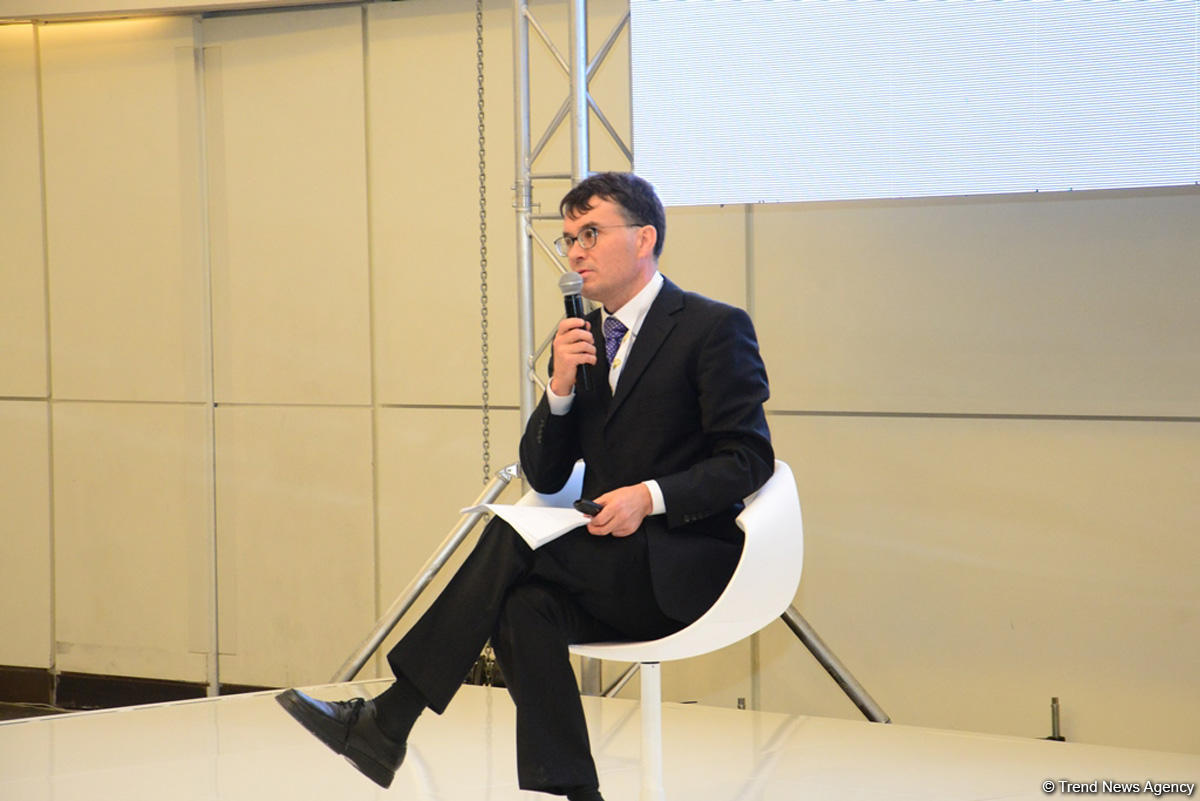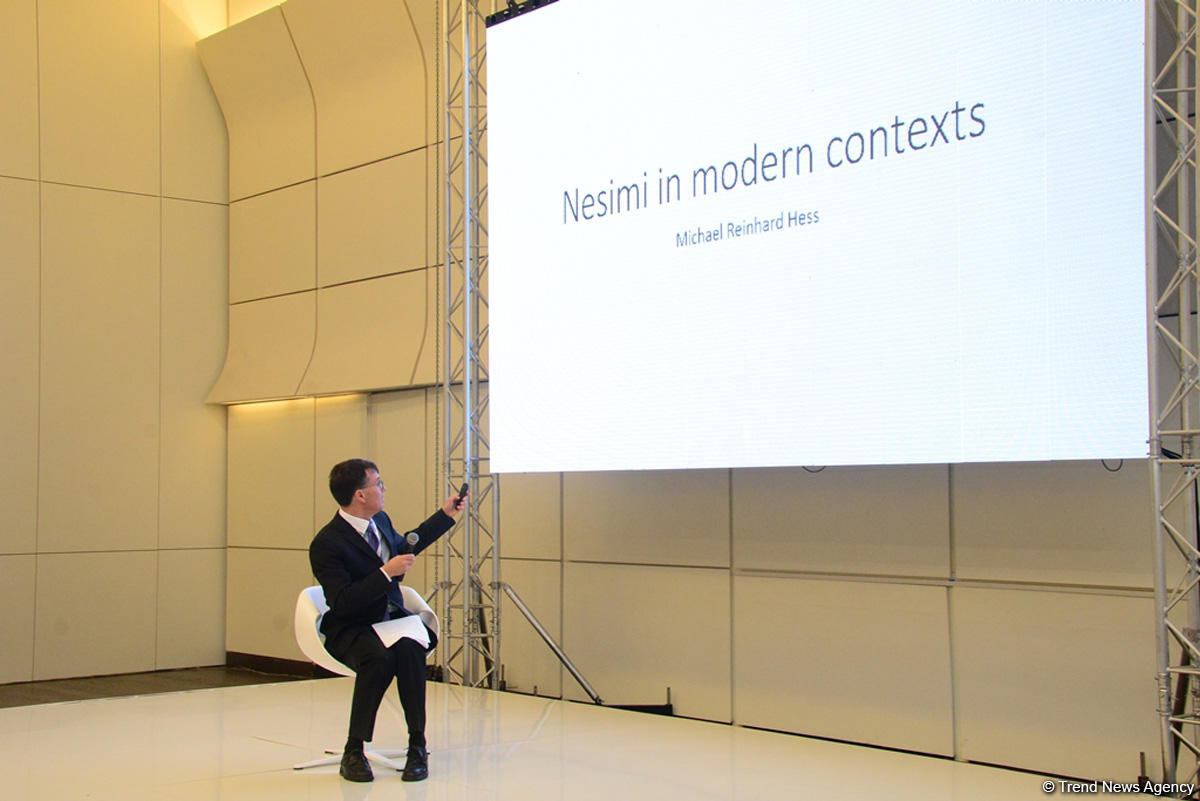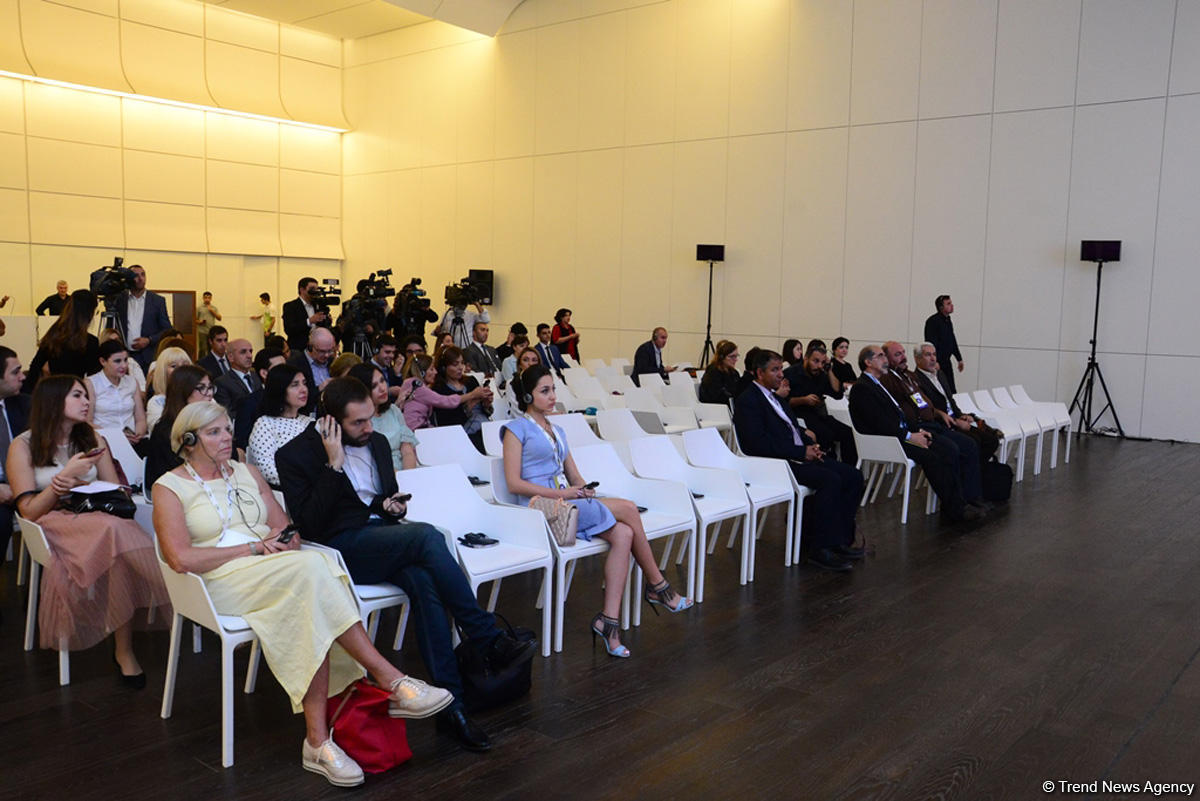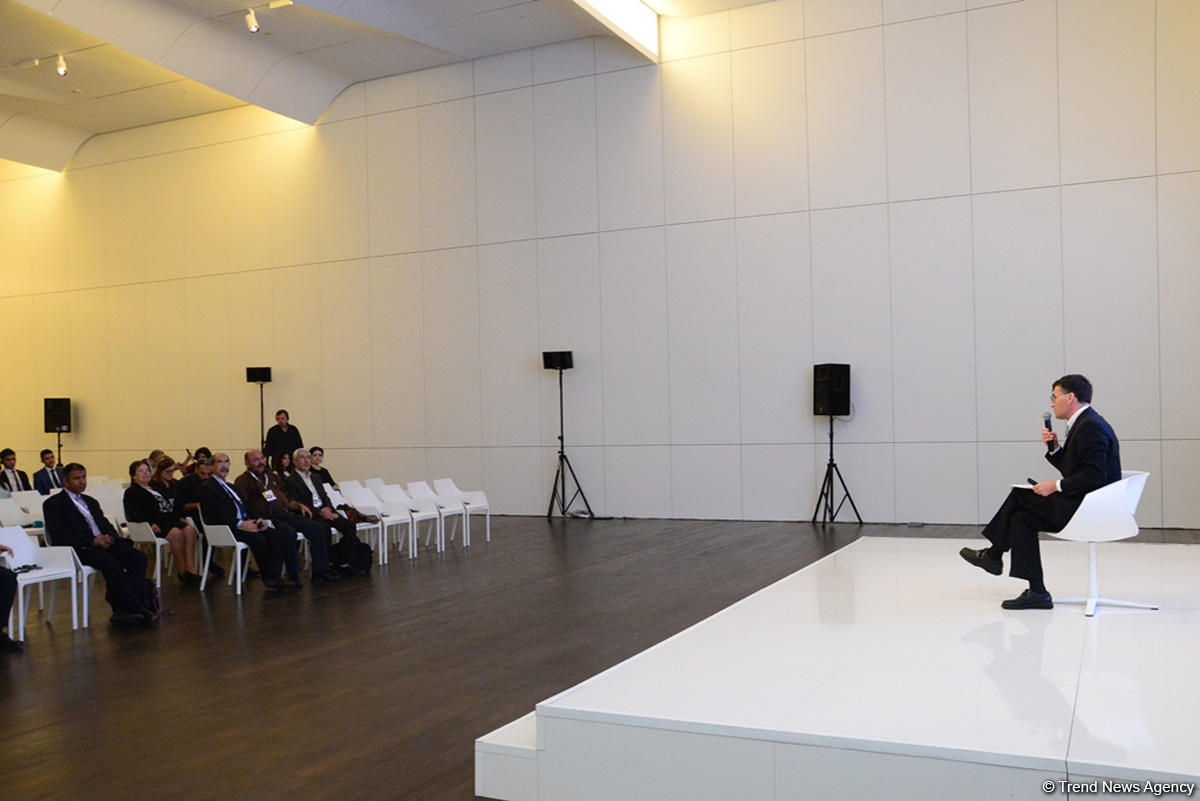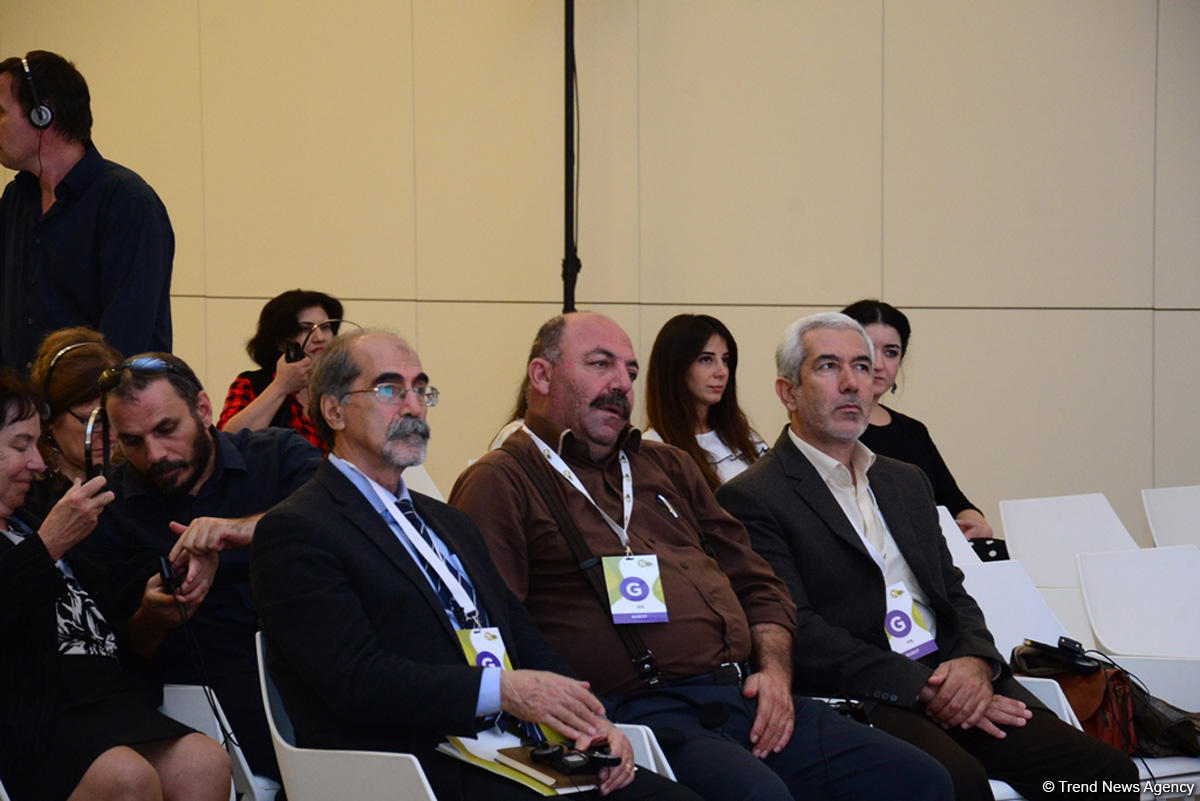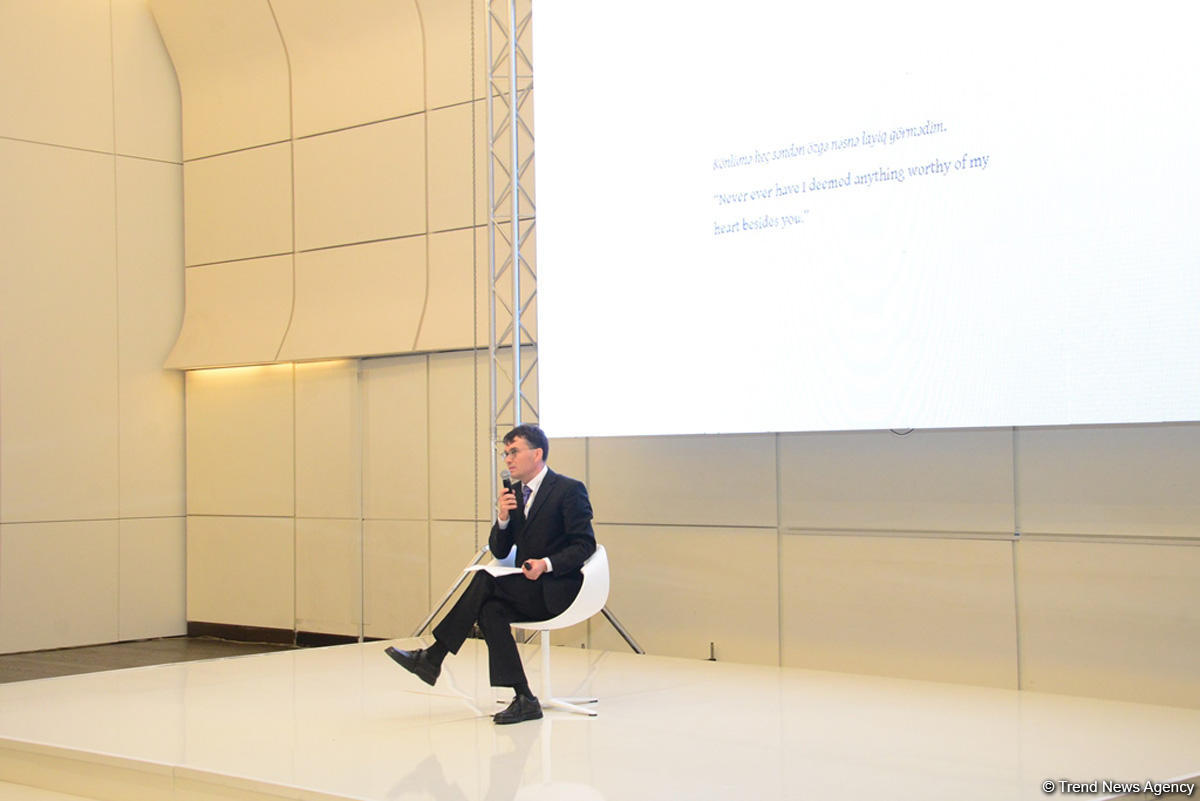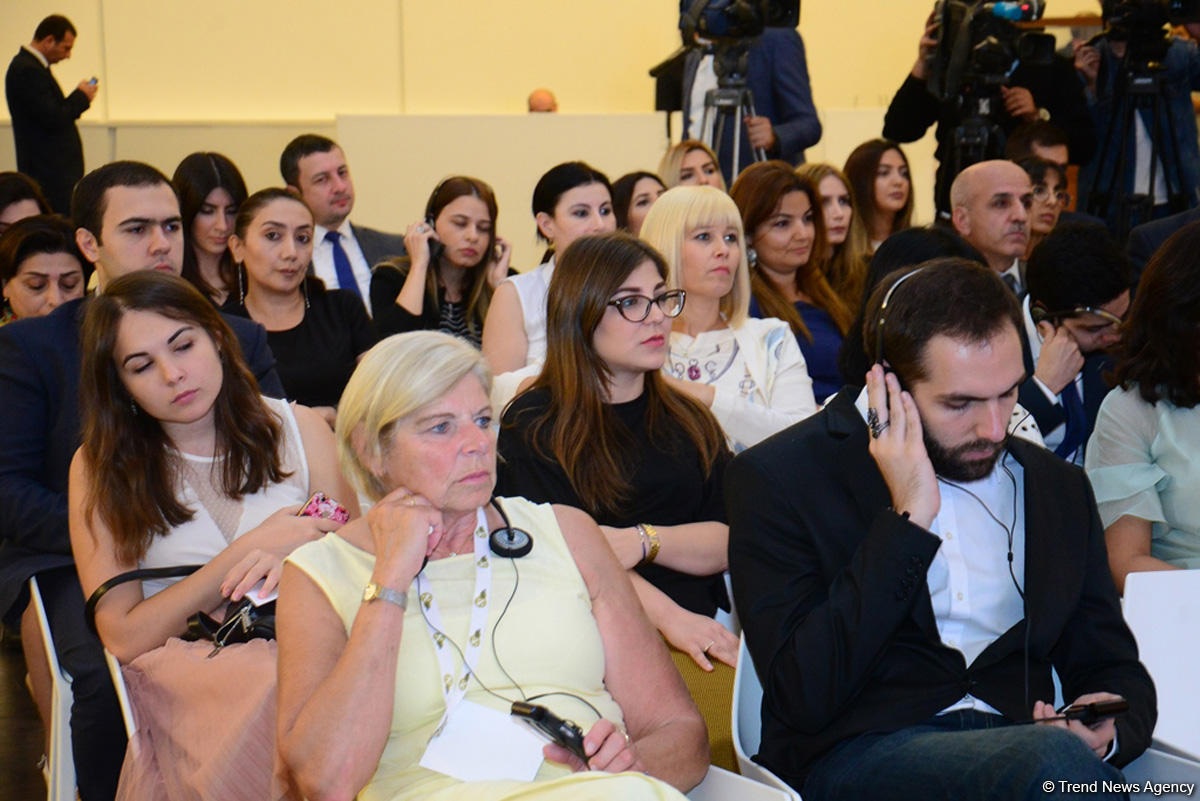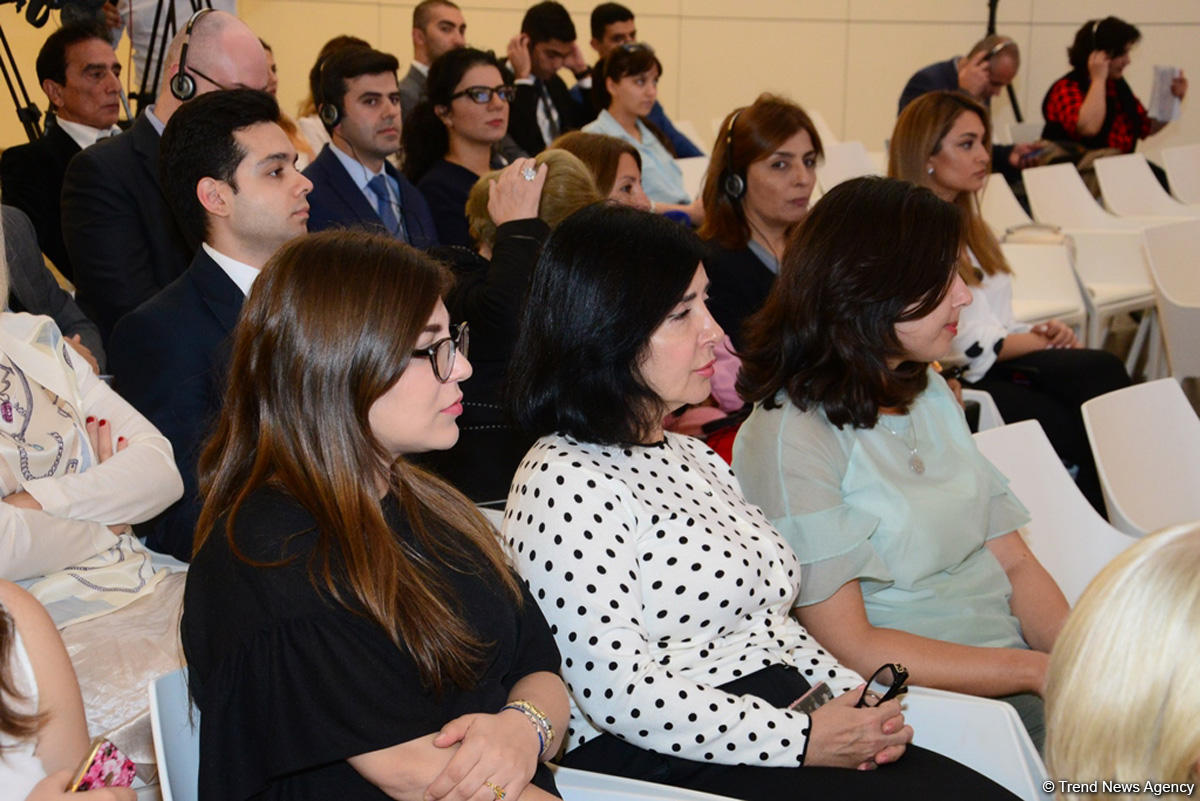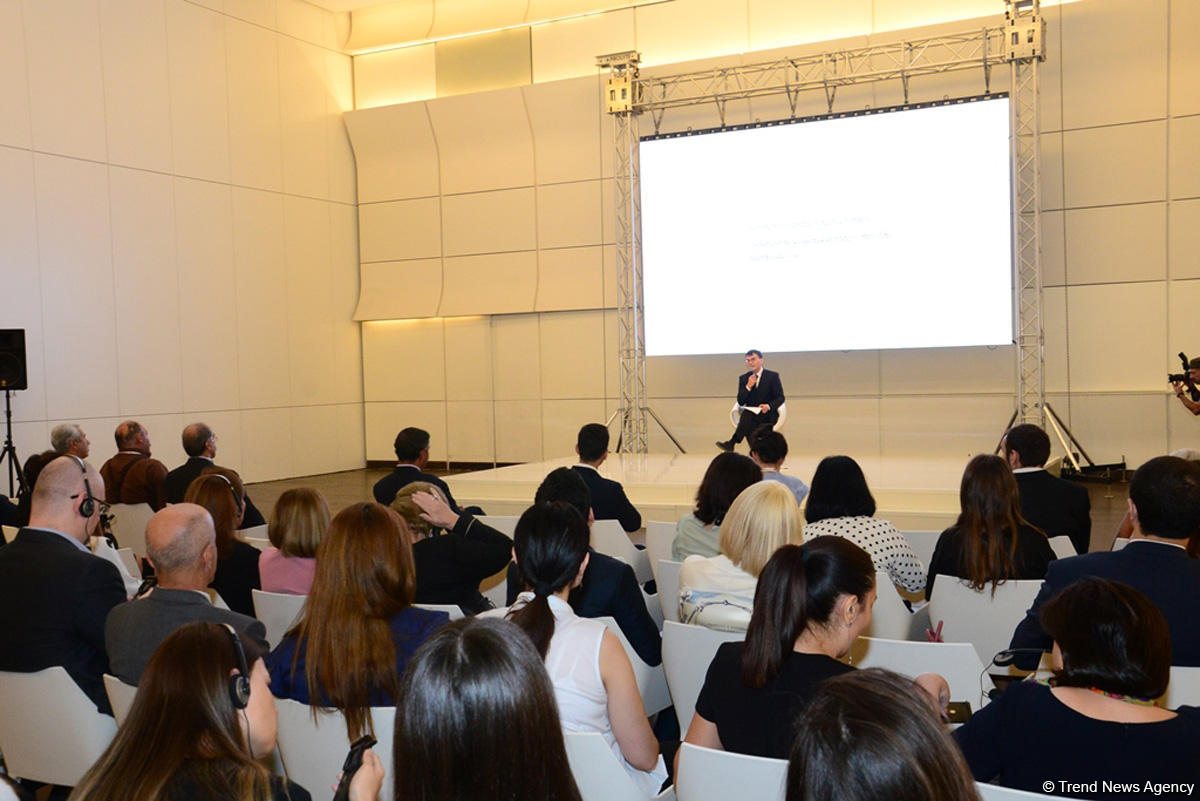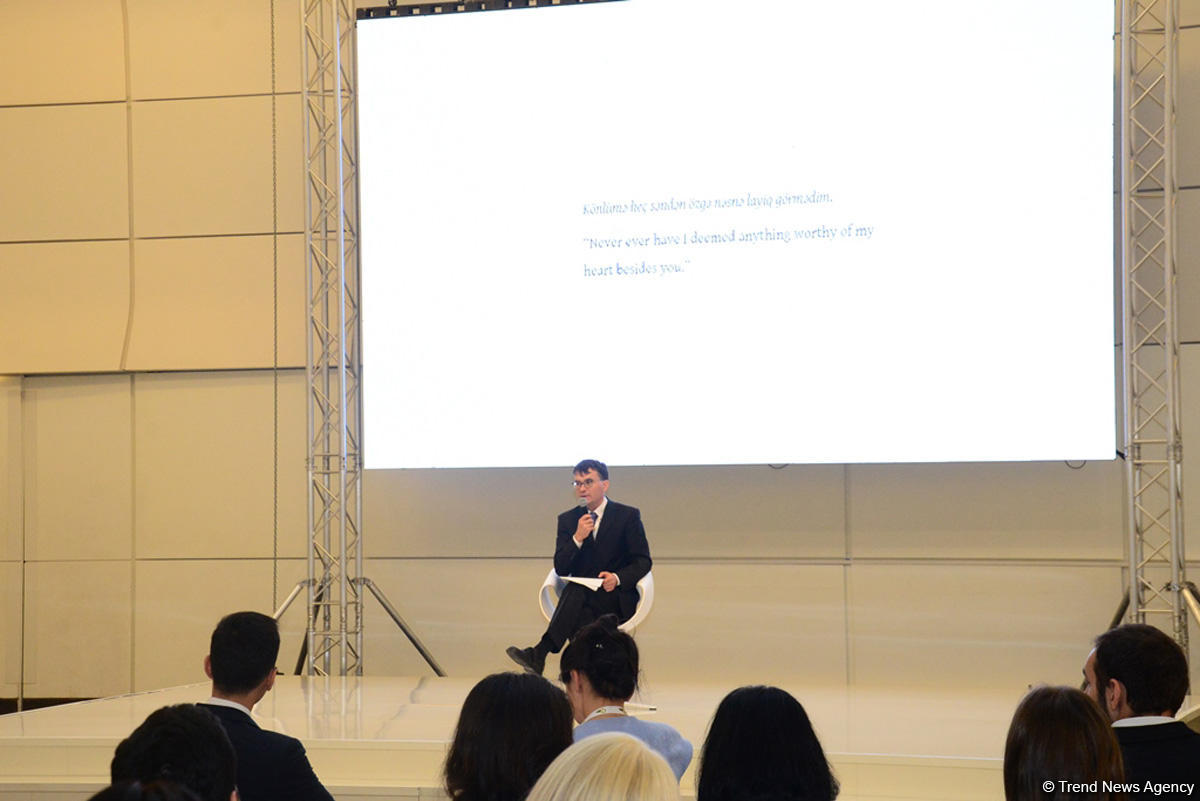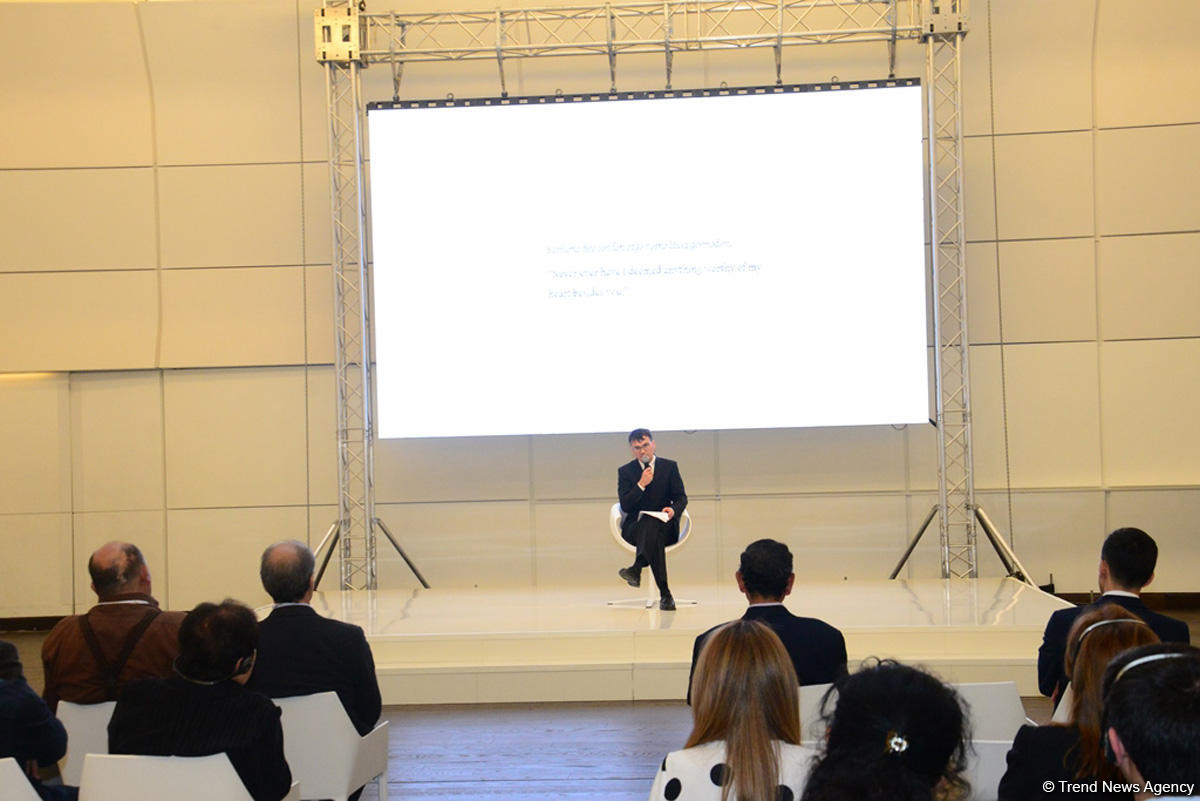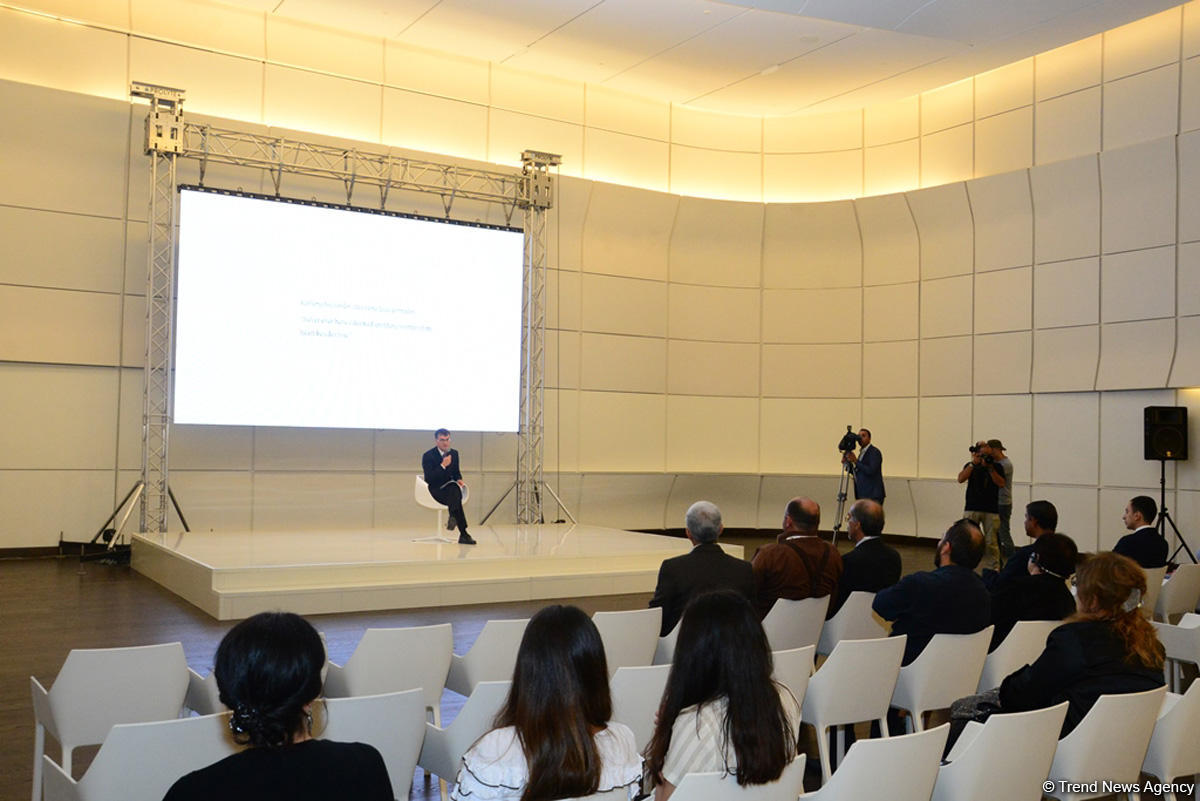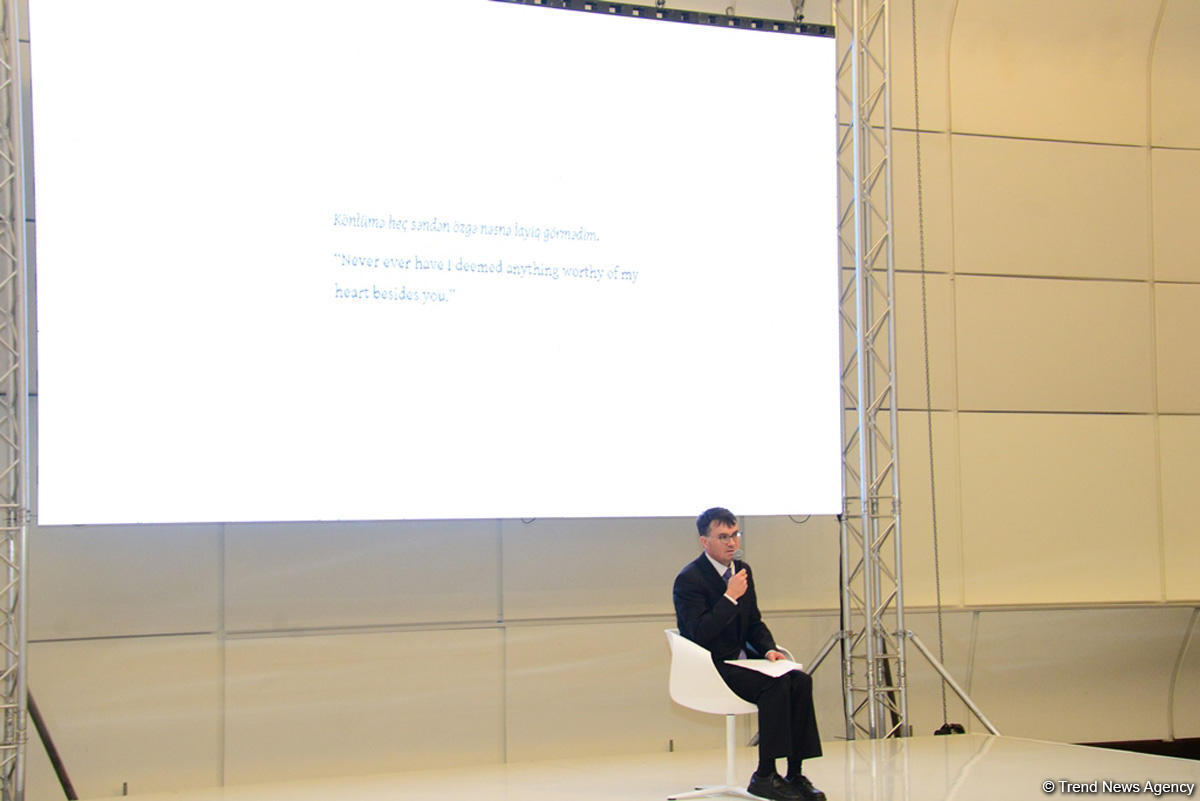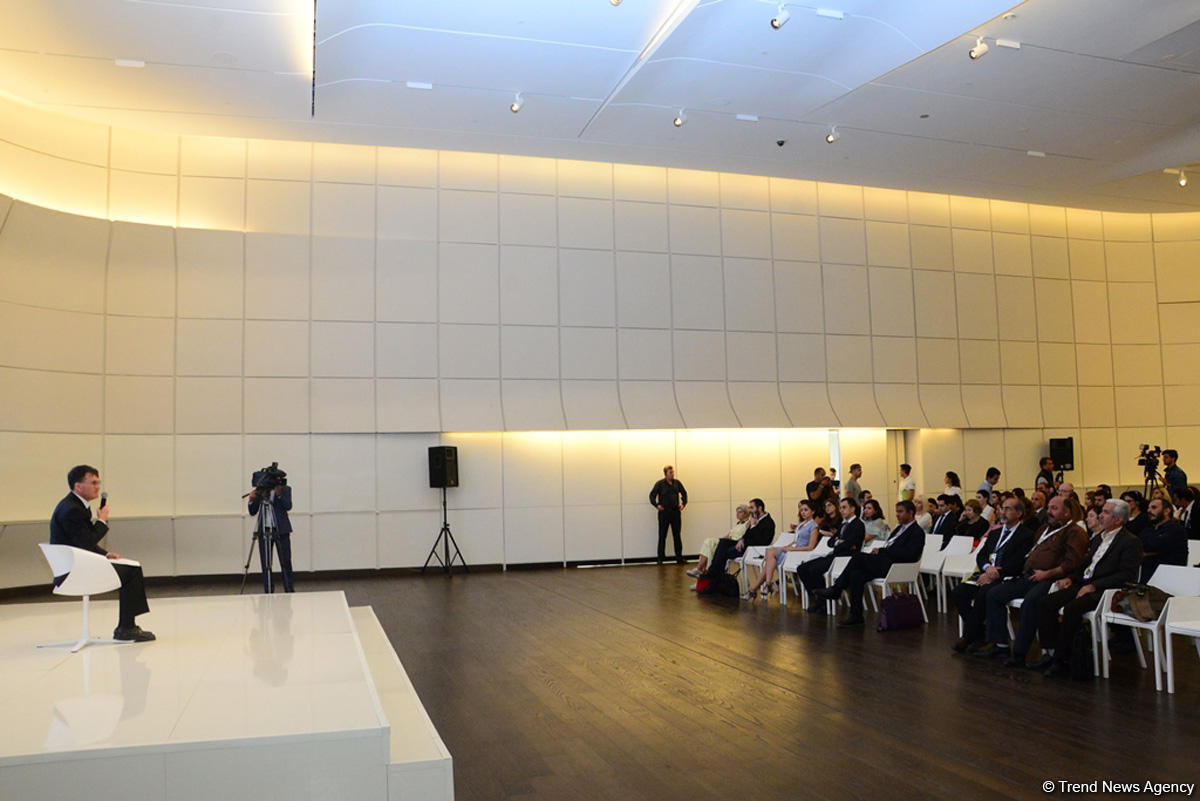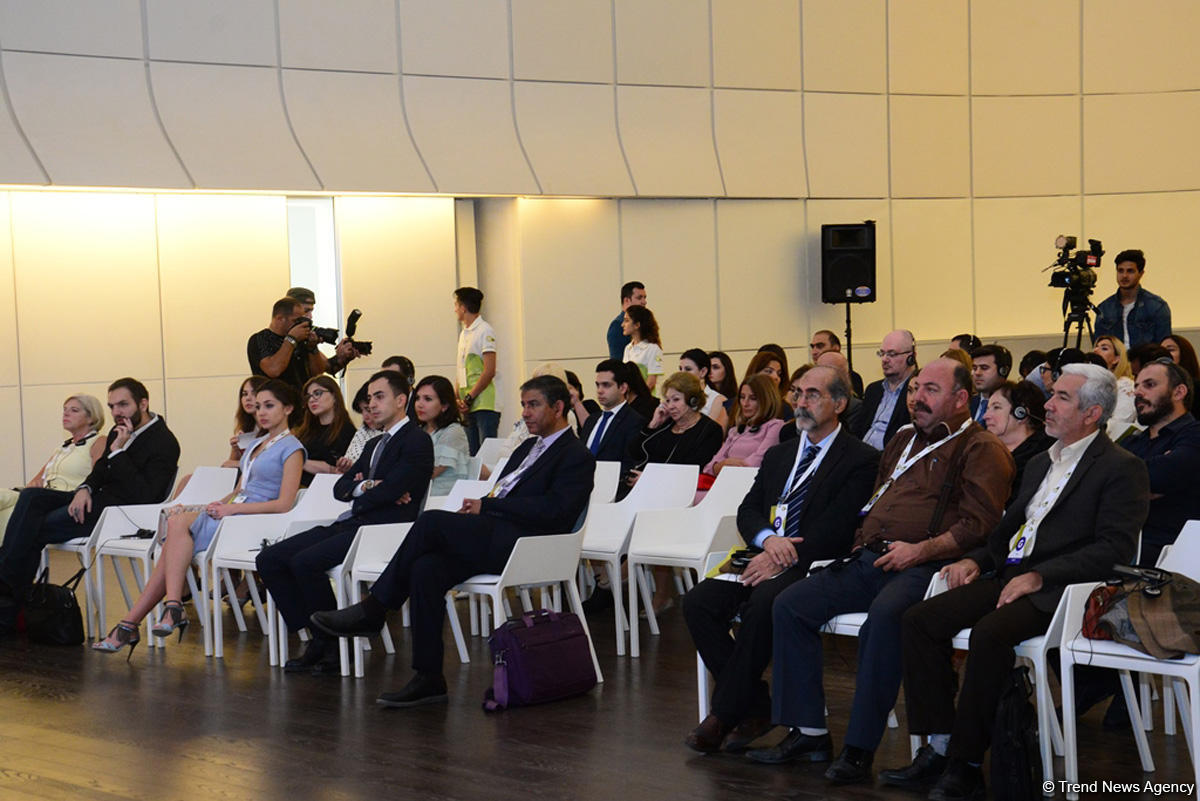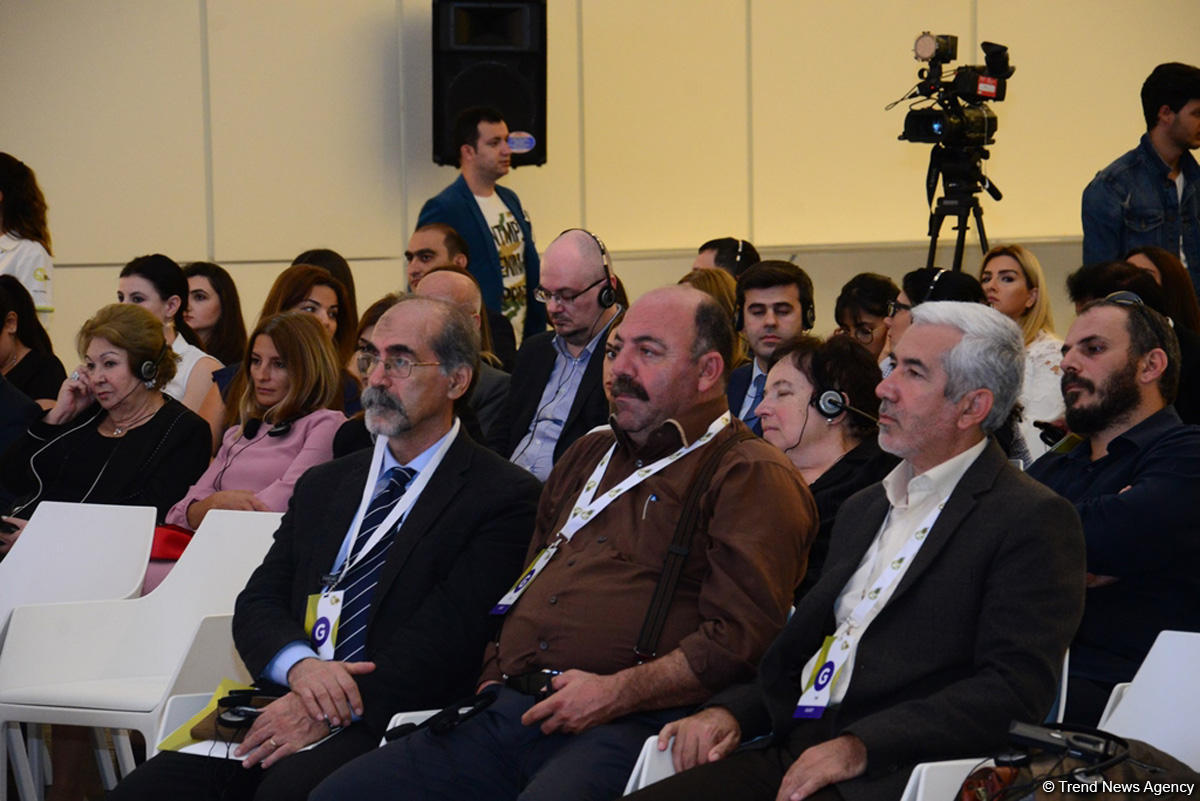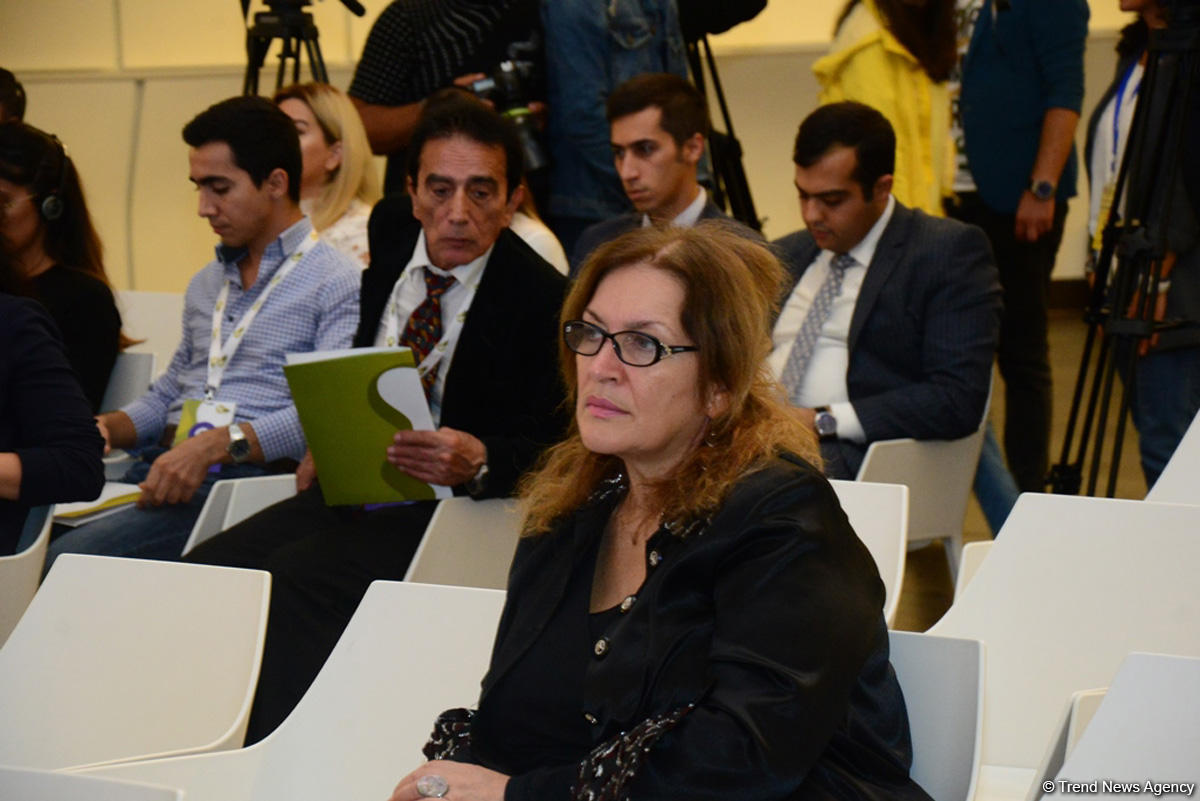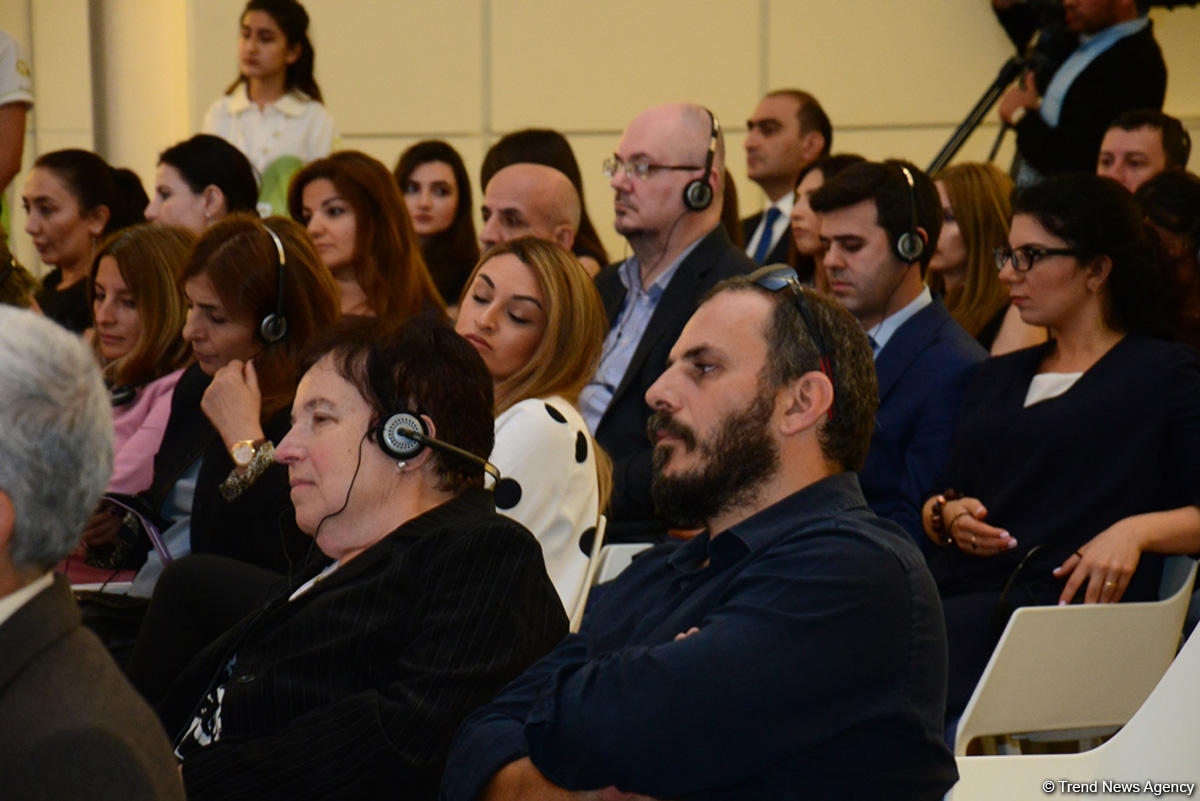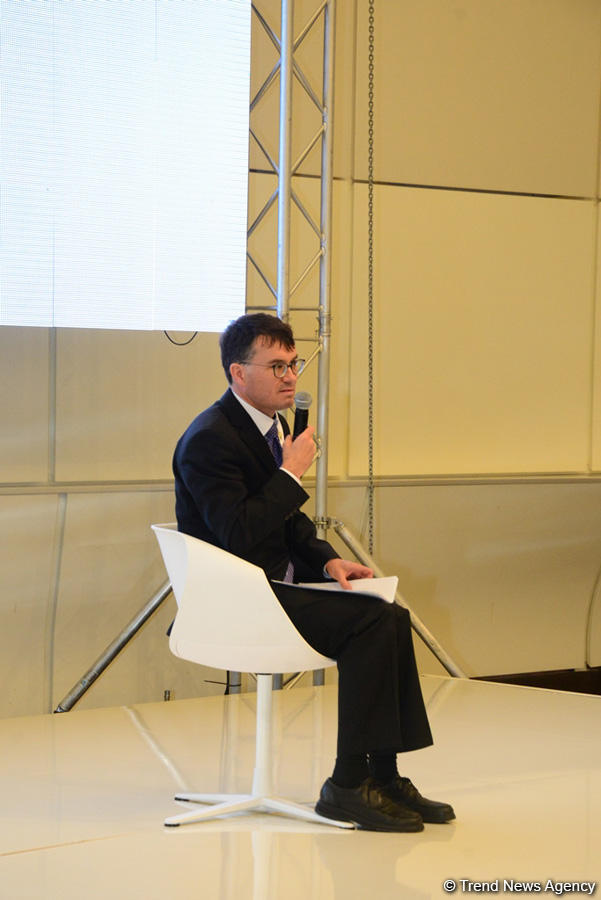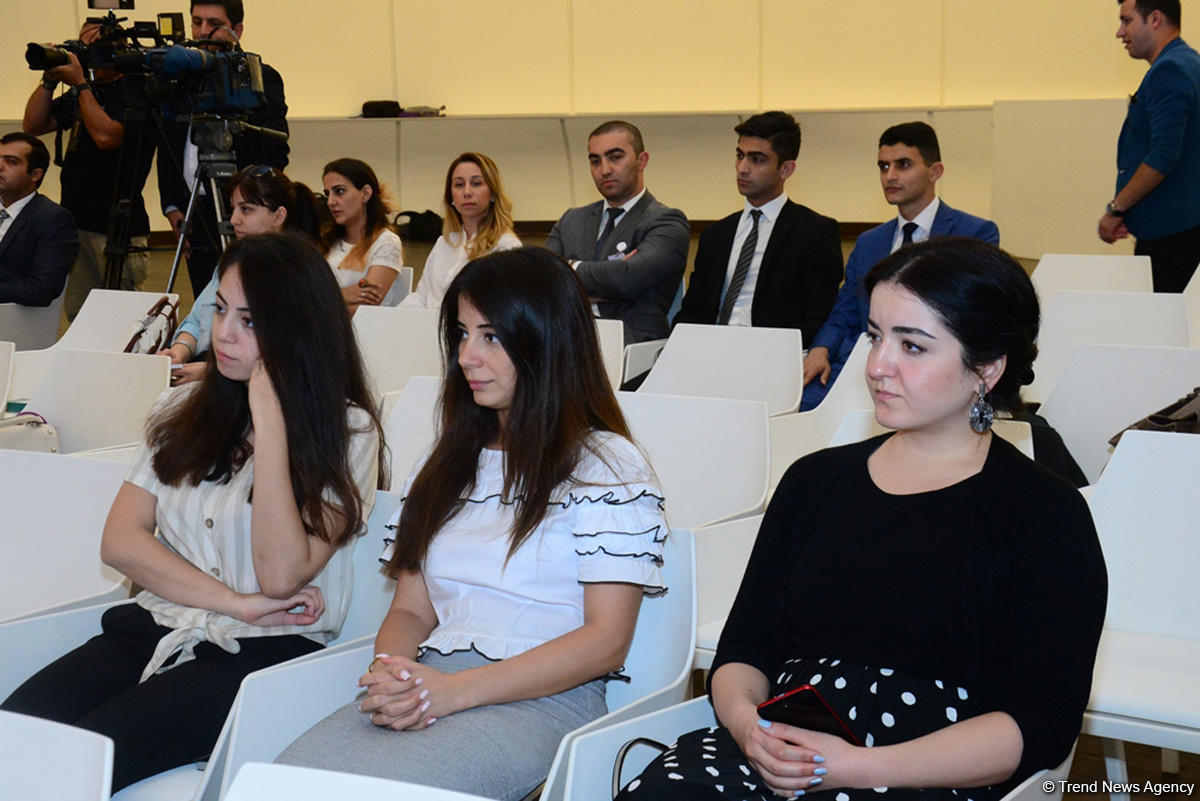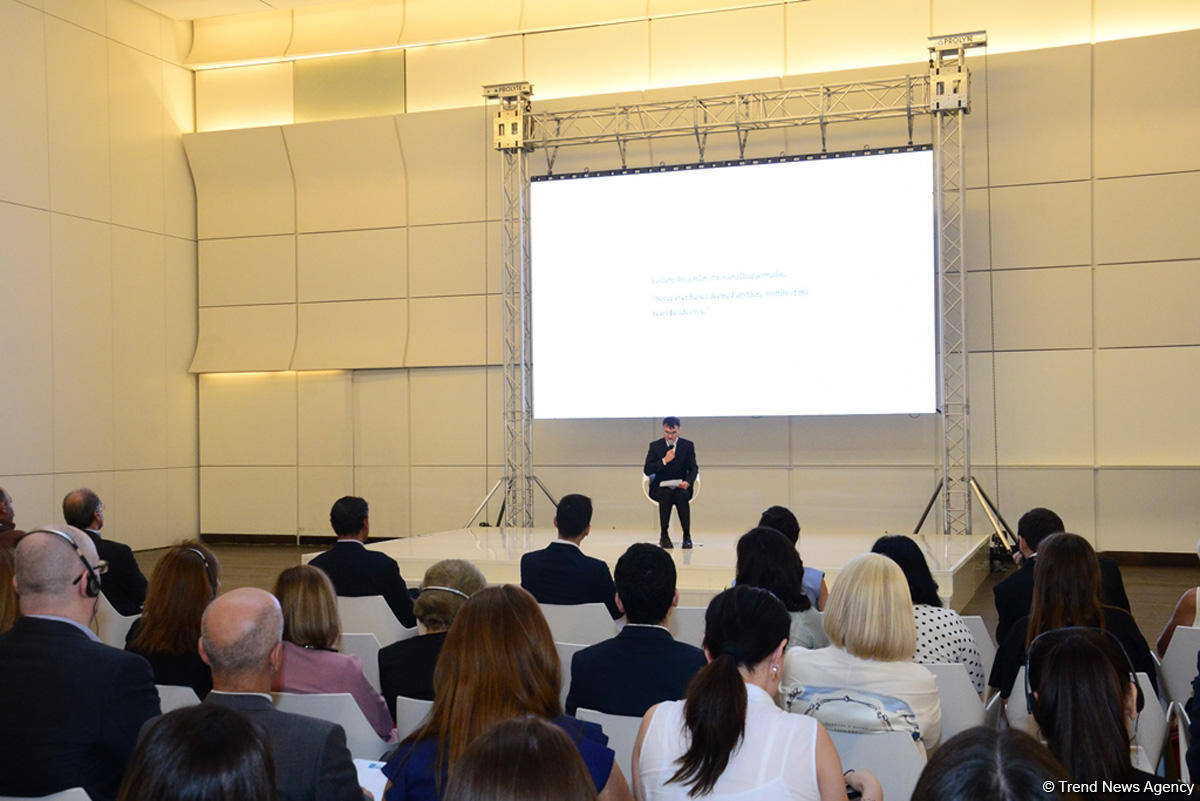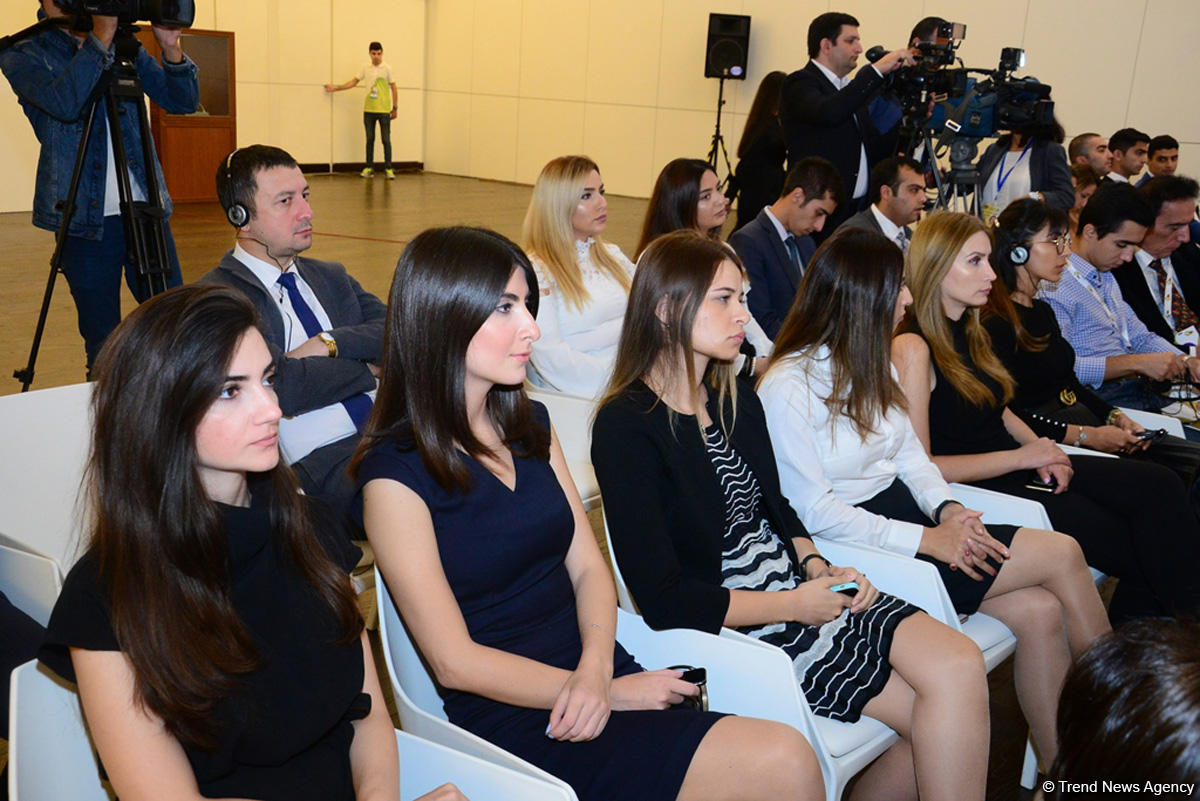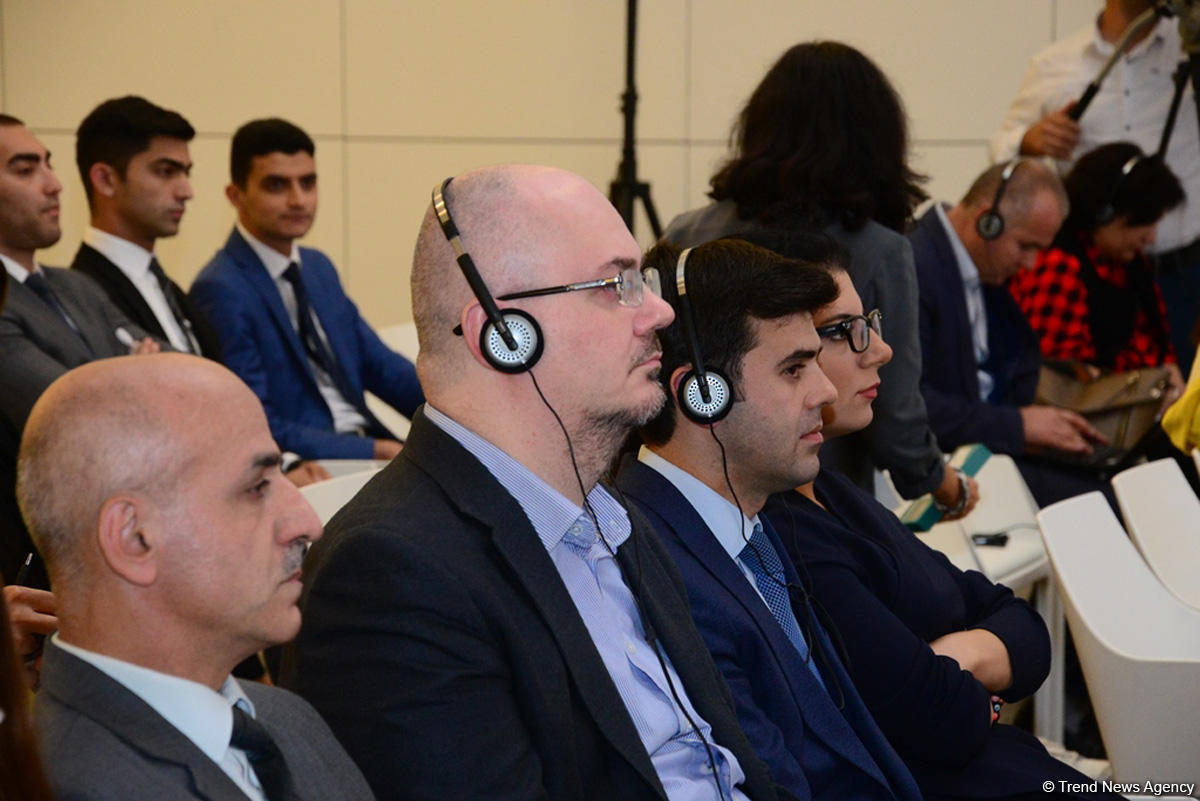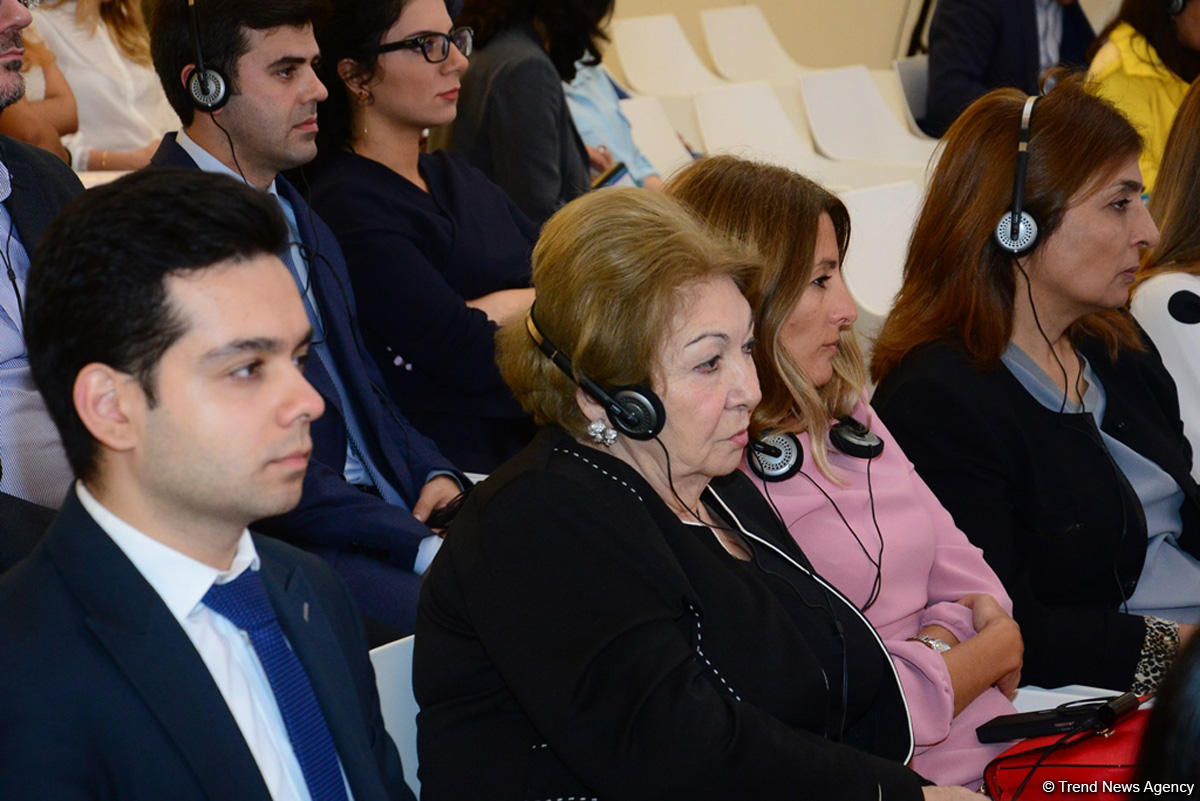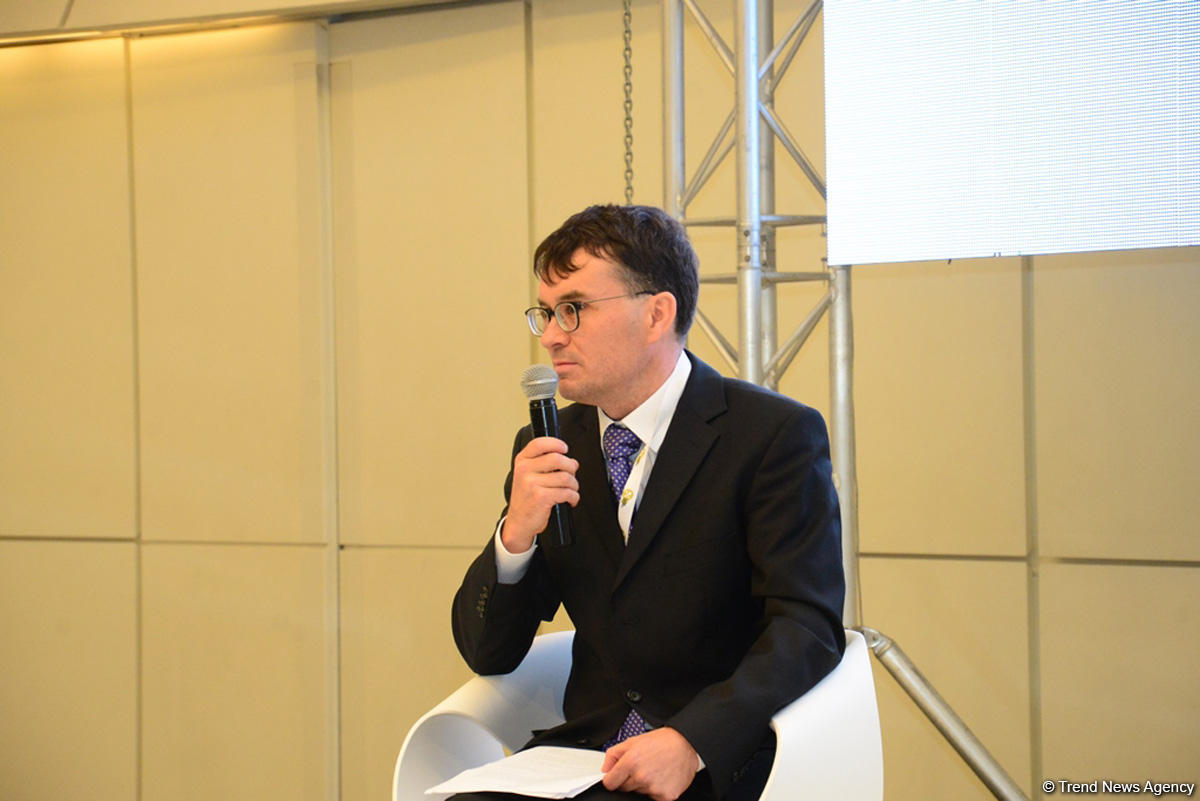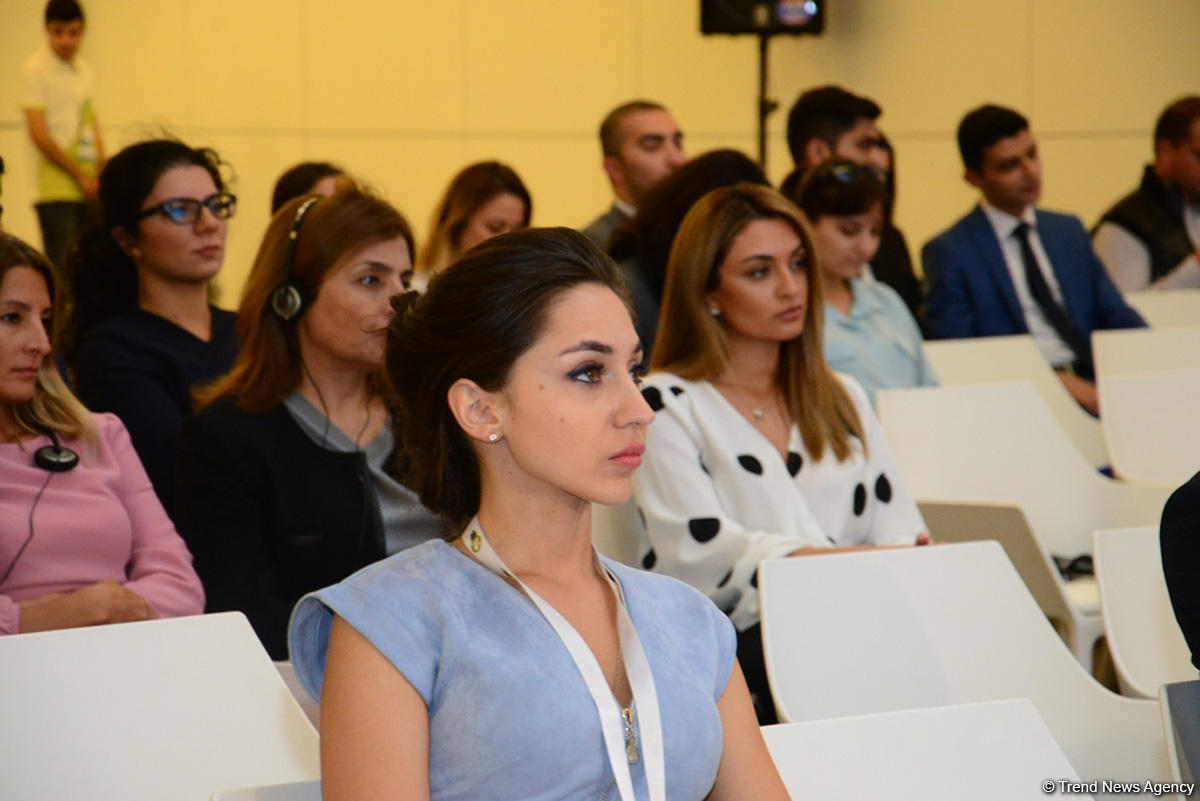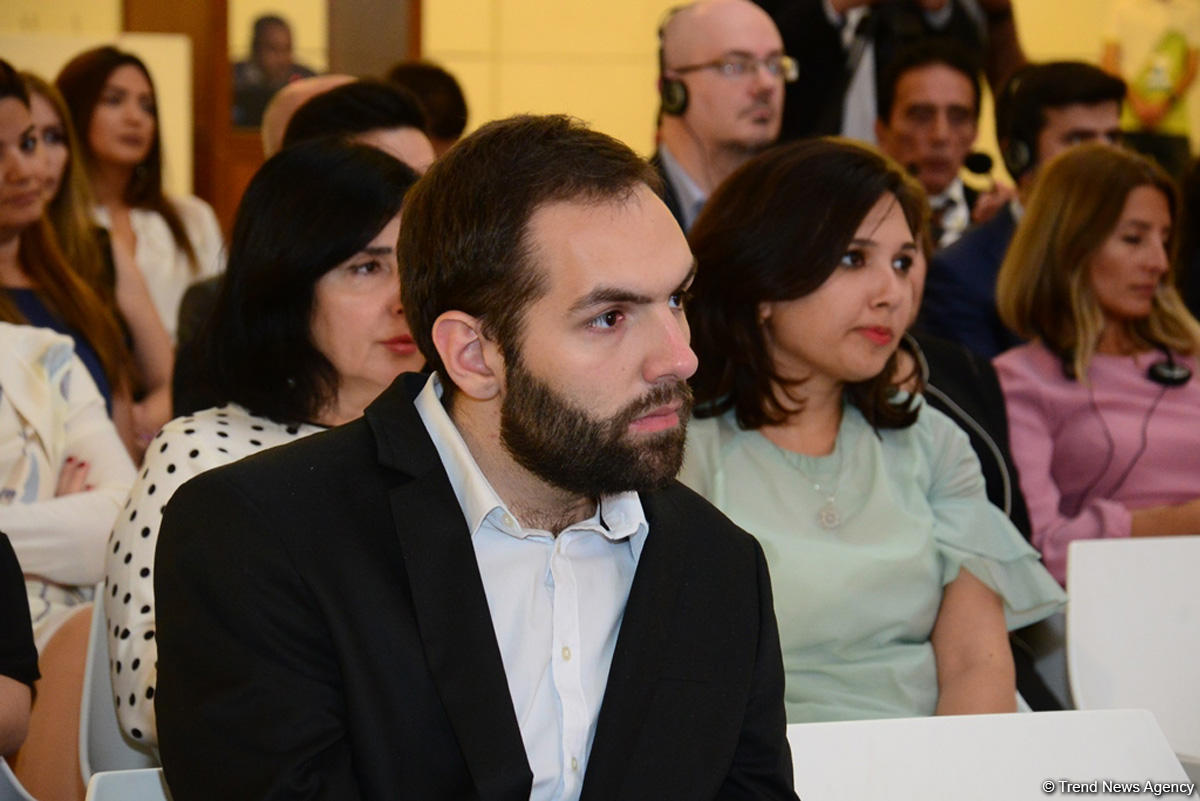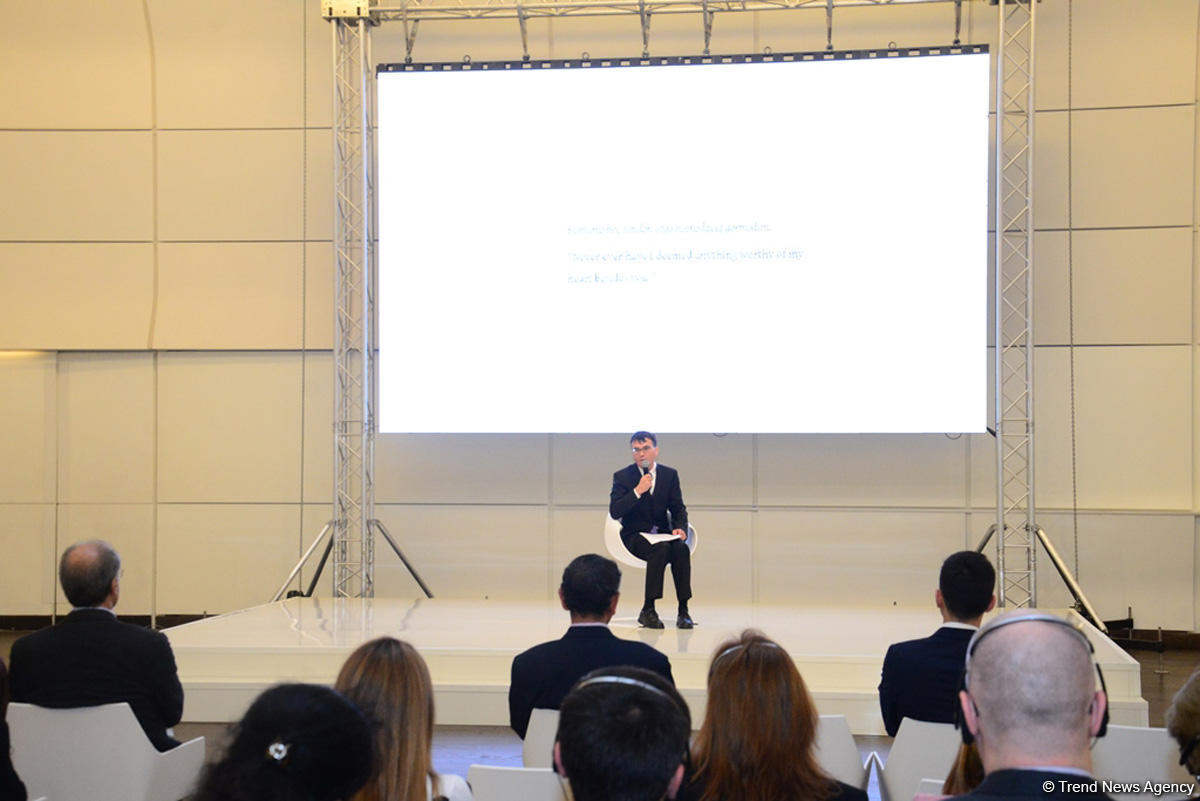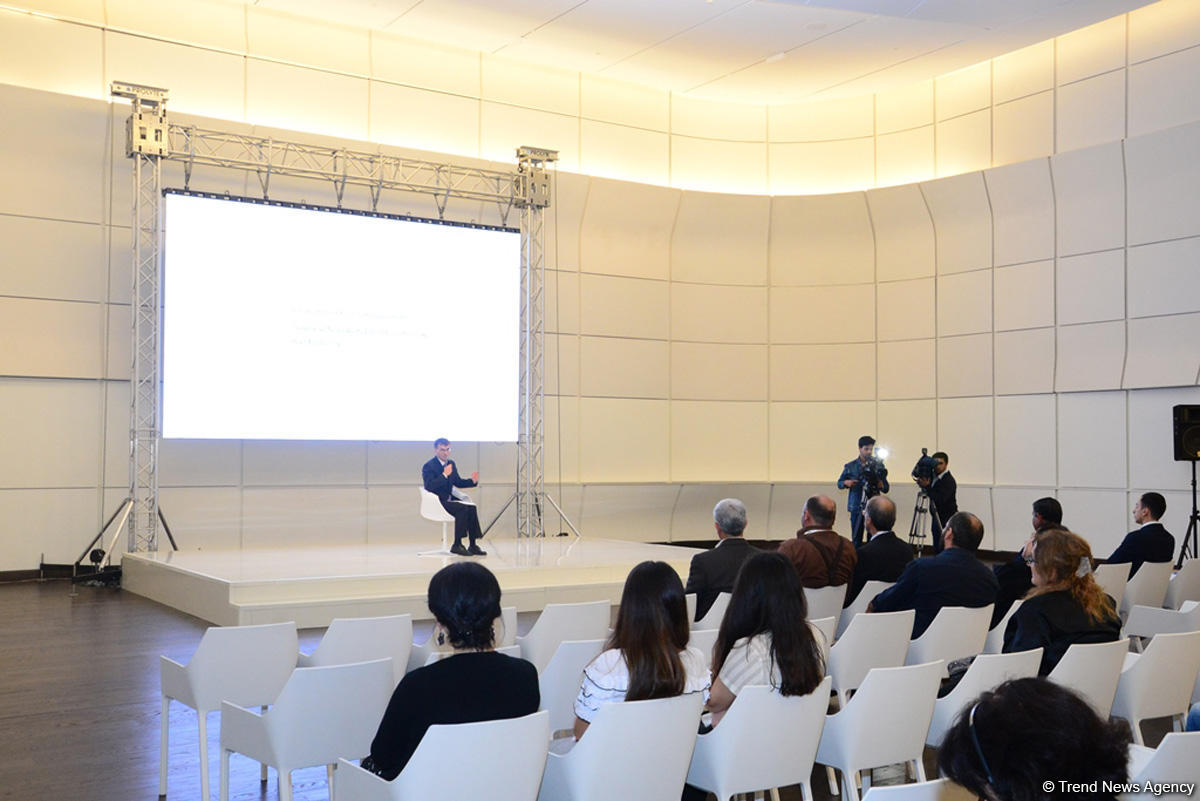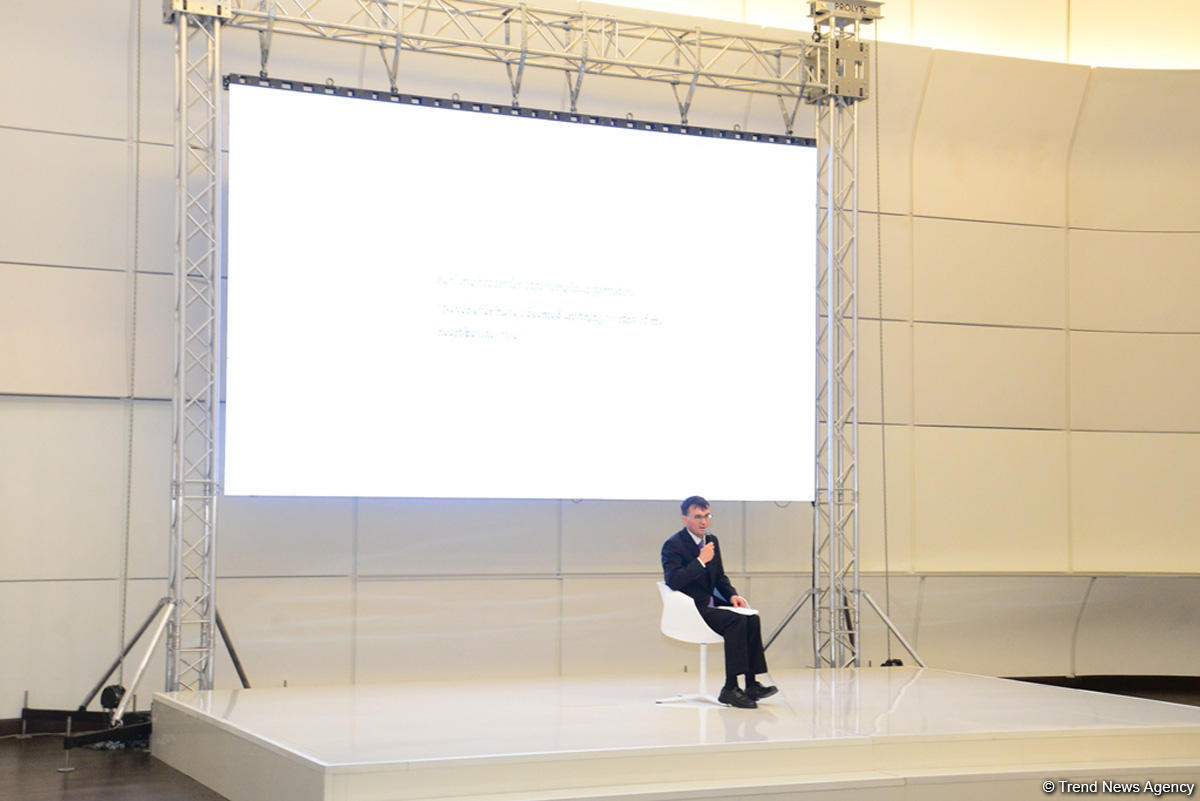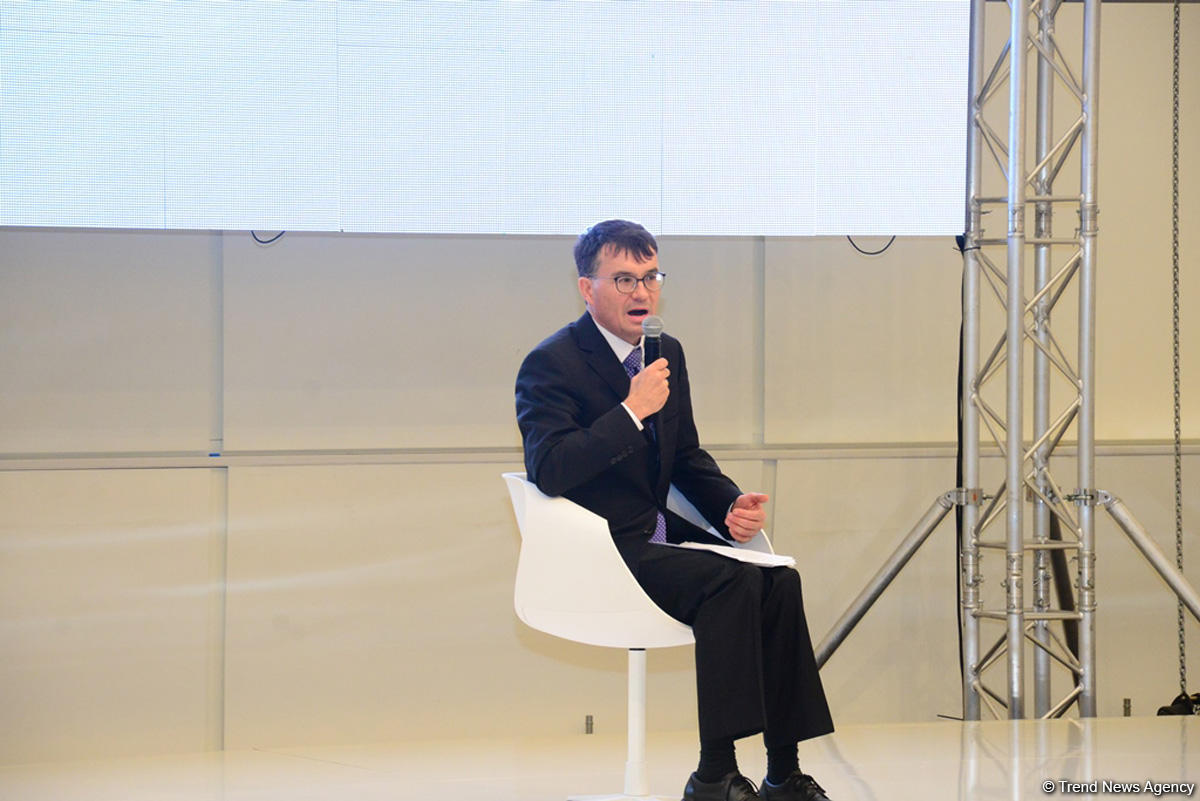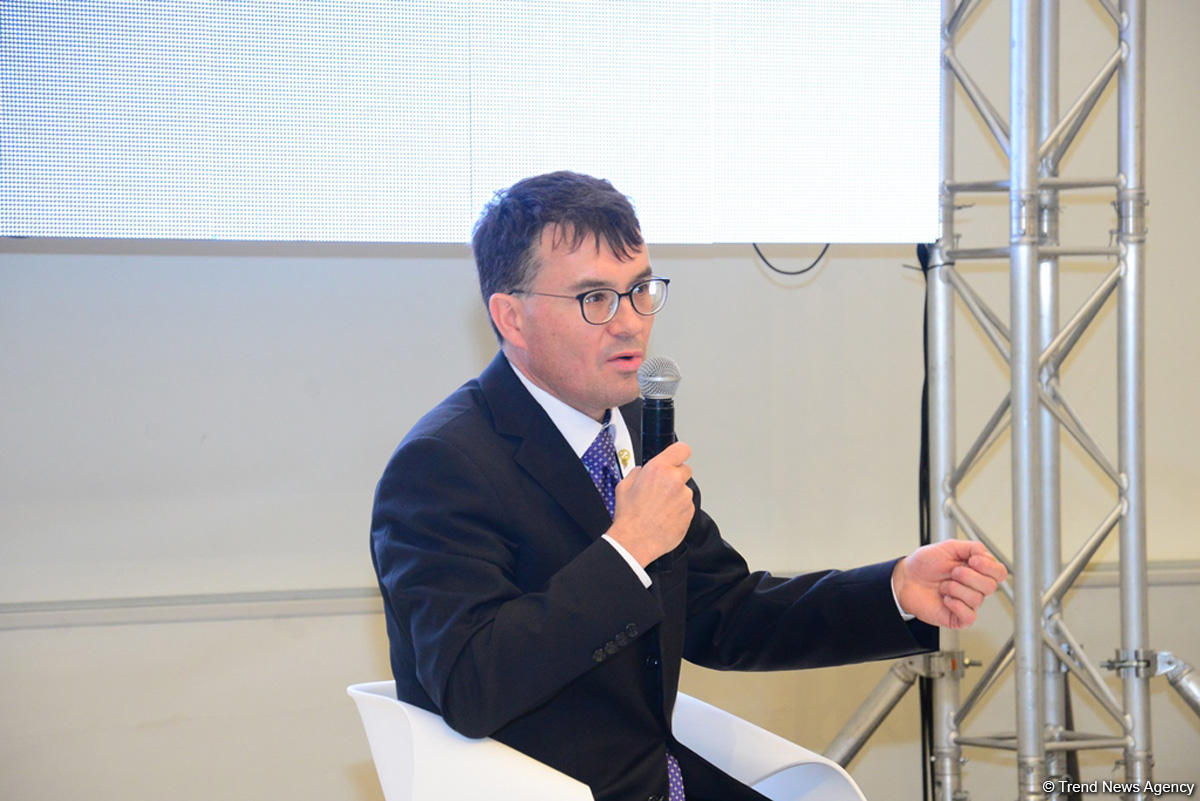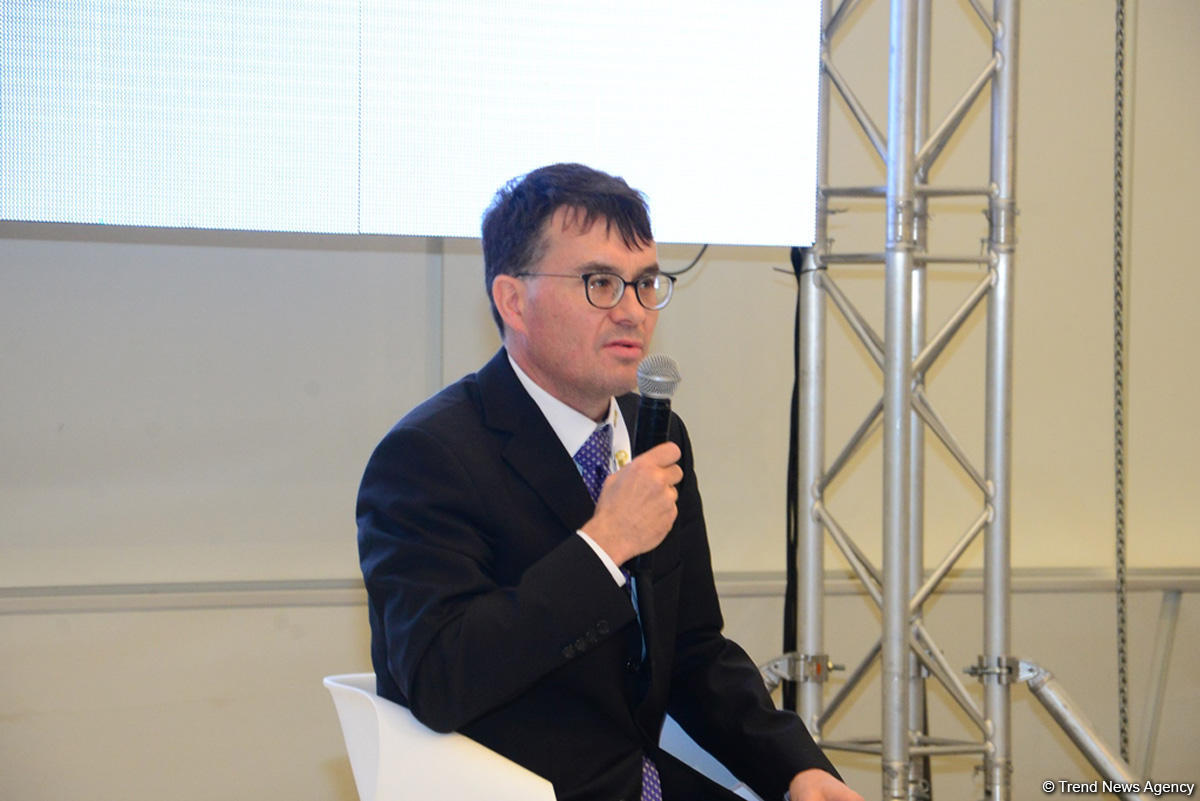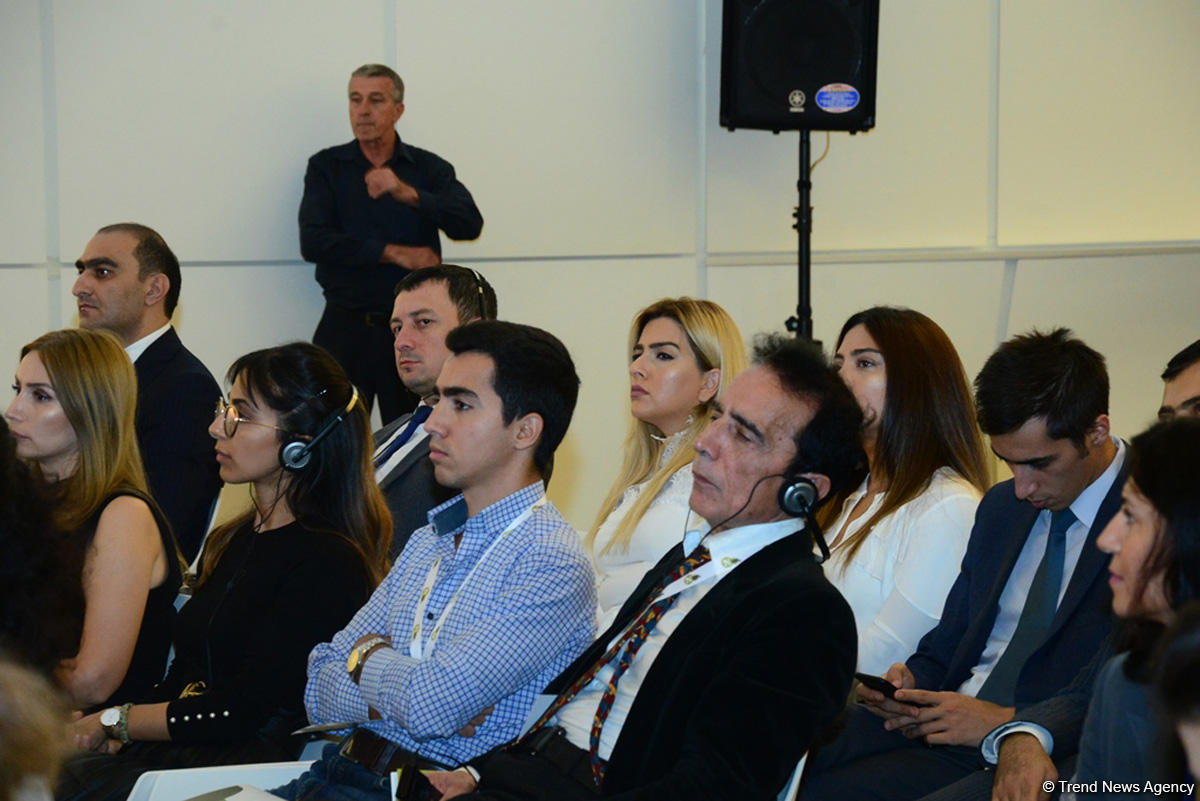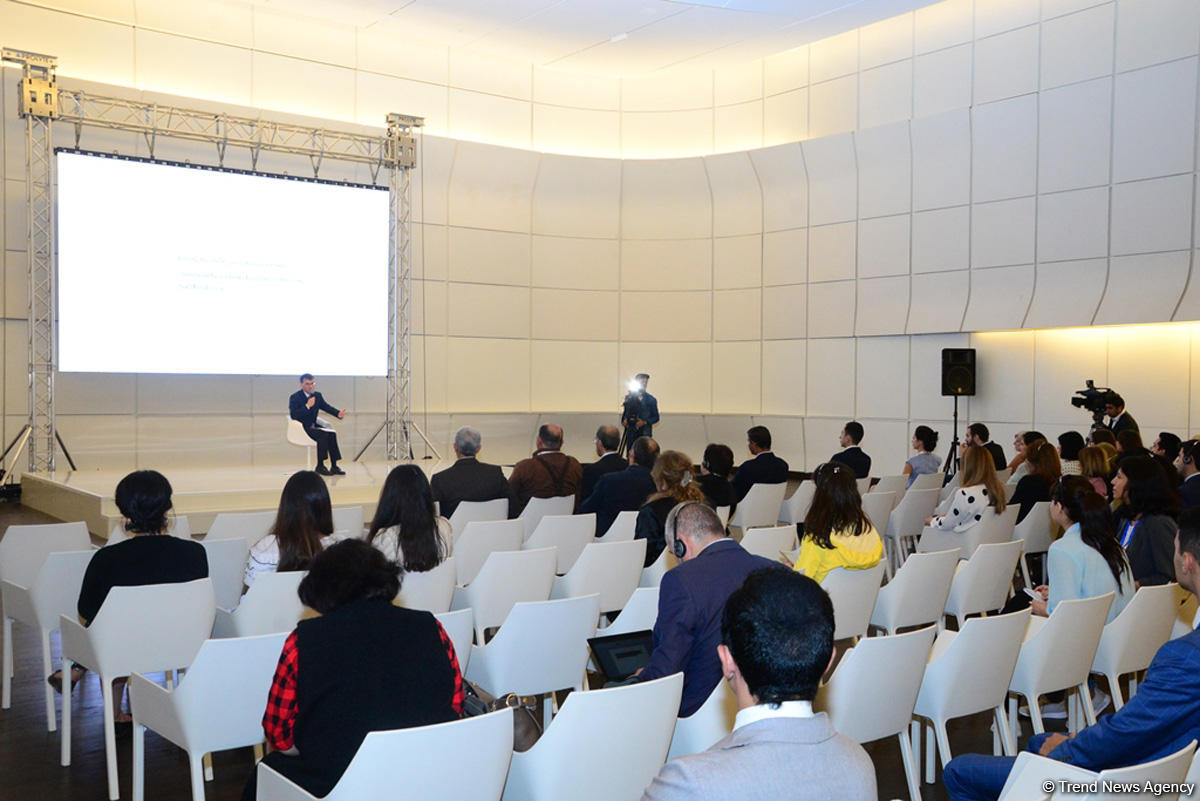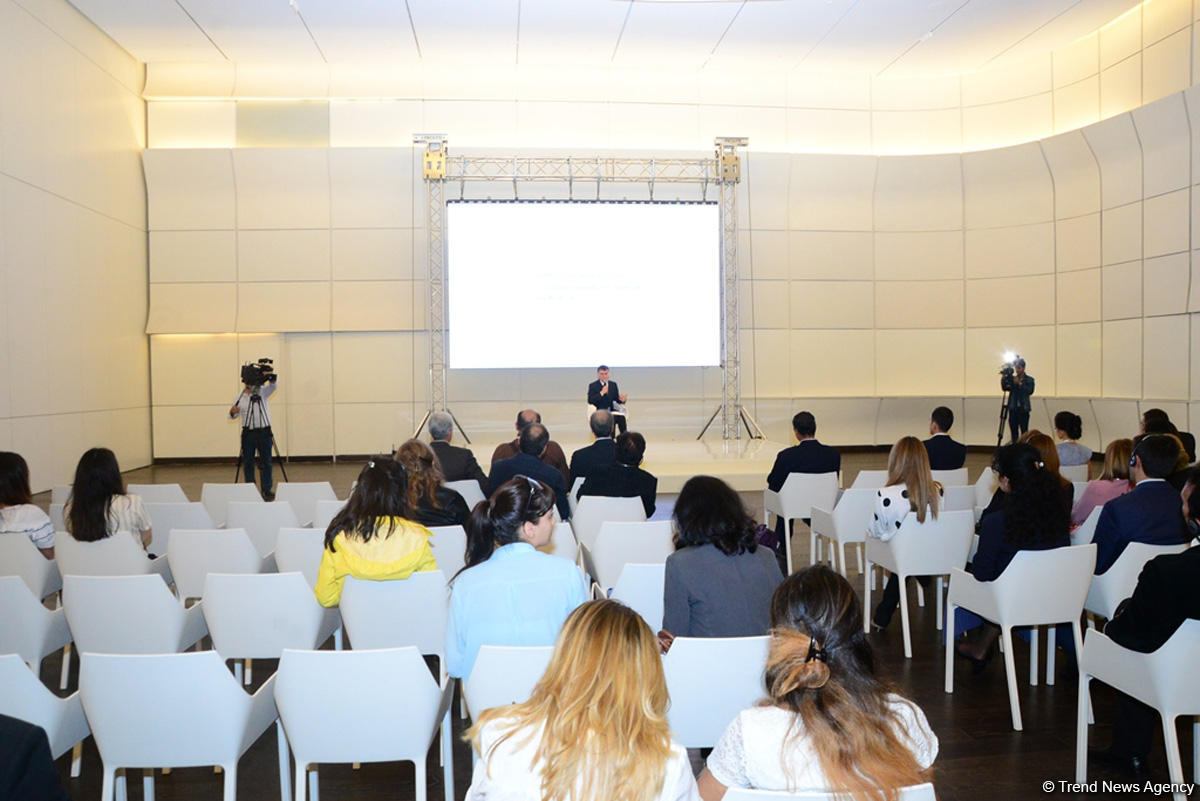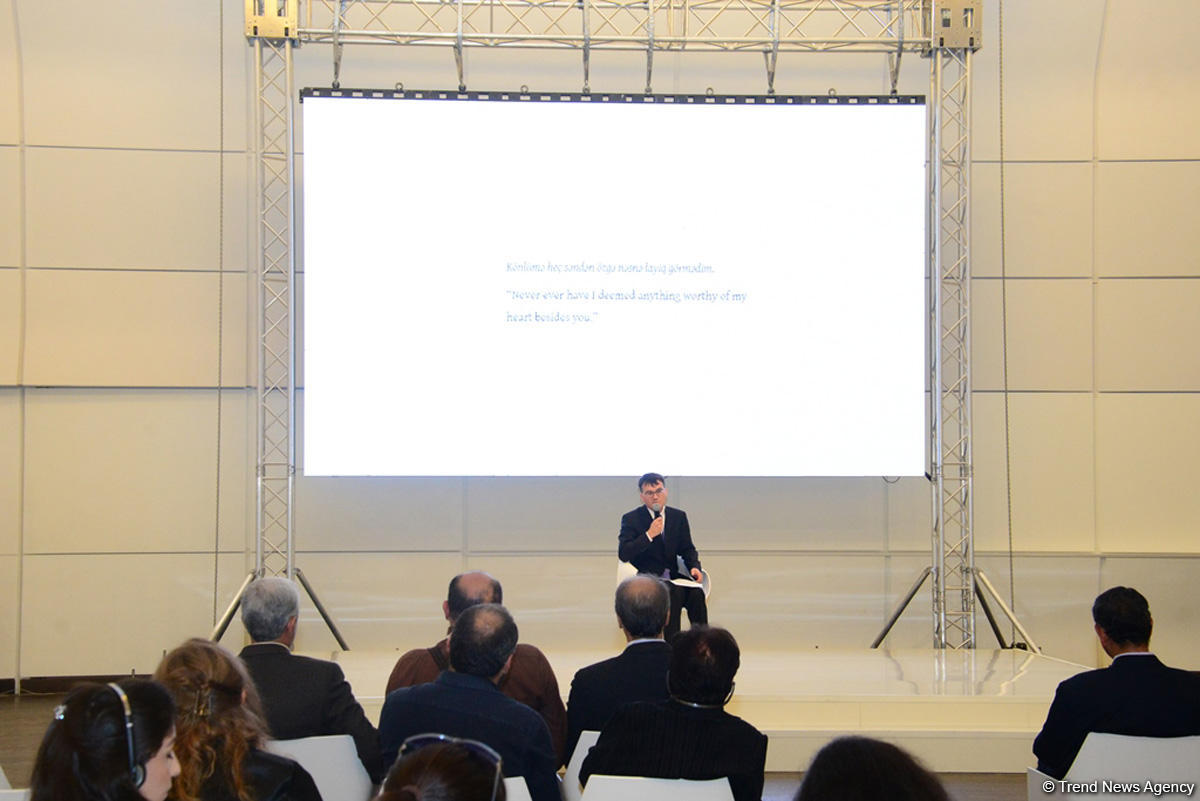Baku, Azerbaijan, Sept. 28
By Vugar Imanov – Trend:
German scholar, who studied great Azerbaijani poet Nasimi’s creativity, Michael Hess, delivered a lecture titled "Nasimi’s Heritage in the Contemporary Context" as part of the Nasimi Festival of Poetry, Arts, and Spirituality at the Heydar Aliyev Center in Baku.
The festival, dedicated to the work of Imadaddin Nasimi (1369-1417), one of the brilliant poets and thinkers of the East, has been organized by the Heydar Aliyev Foundation and supported by Azerbaijan’s Ministry of Culture. The festival is being held in Azerbaijan for the first time from September 27 till September 30.
The festival is held under the slogans “Beyond the Limited Self”, reflecting the philosophical views of the poet, and “I am a Particle, I am the Sun” which are the poet’s lines. The program of the large-scale event covers various types of art and knowledge fields. During the festival, programs are being organized in various places in Baku, as well as in Shamakhi, the native city of the poet.
Hess expressed gratitude to the Heydar Aliyev Foundation for the invitation to visit Baku and participation in the Festival.
In his lecture, the German scholar stressed that Nasimi’s poetic heritage reflects the breadth and humanism of his views. Nature, the beauty of the world is the source that inspires the poet on his way to the knowledge of life and the Universe.
“It is impossible to appreciate the full value of Nasimi’s spiritual heritage for the modernity,” the scholar said. “Nasimi and his poetry, which is contemporary for that period, is distinguished by emotionality.”
Michael Hess was born in 1967 in Germany’s Offenbach city. In 1987-1992 he studied at the Faculty of Oriental Studies at the Frankfurt University. In 1993-1997 he entered the doctoral studies of Mainz University and under the leadership of well-known Turcologist Lars Johanson defended his doctoral thesis.
Along with scientific research at the prestigious universities of Mainz, Berlin and Frankfurt, he began to teach the Azerbaijani language and lecture on Azerbaijani literature.
In 2000-2004, he was invited by the German Research Association to work on the project of translation of diwan (collection of lyric poems) by Nasimi into the Turkish language. For this purpose, the scholar visits Baku, Istanbul and Konya to study Nasimi's manuscripts. In 2009 he published the book "Die Sprache des Menschengottes (Untersuchungen zu Imad ed-Din Nesimis (d. Ca. 1400) turkischem Divan".
Afterwards, at the prestigious Free University of Berlin, he begins his scientific work on the development of programs for the symbolism of Islamic letters, in particular, on the basis of the philosophy of Hurufism. Nasimi was a follower of Hurufism (from the Arabic "khuruf" - letters) is one of the branches of Sufism).
It is such a teaching that the Quran is interpreted through a system of letters. The creator of this branch was Fazlullah Naimi, teacher of Nasimi. The presented fundamental researches cause a great resonance in the scientific world, allow reading and re-studying ancient Arabic and Turkish manuscripts.
During his scientific activity Hess conquered the hearts of millions of Azerbaijanis and showed to the whole world the greatness of Azerbaijan’s classical national literature through his research. In European countries the German scholar has repeatedly delivered speech on the creative heritage of the Azerbaijani classic poets - Qazi Burhaneddin (1344 -1398), Imadaddin Nasimi (1369-1417), Shah Ismail Khatai (1487-1524) and others.
As a specialist in Azerbaijani literature, Michael Hess was invited to the Brill publishing house, where the third volume of the Islamic encyclopaedia was being prepared.
The German scholar prepared the works entitled "Azerbaijan Literature" for the encyclopedia, which included articles about writers, namely, Abbasgulu aga Bakikhanov, Abdulla Shaig, Mirza Fatali Akhundov, Abdurrahim bey Hagverdiyev, Ahmad Javad, Ali bey Huseynzade, Abbas Sahhat and others.
But this is not a complete list because the work on the encyclopaedia is underway. Michael Hess also took part in working over various projects in Germany, in the creation of works on Azerbaijani literature, dictionaries and educational materials.
The activity of Michael Hess on the propaganda of Azerbaijan is not limited to scientific activity in the field of literature. In October 2014, at the University of Oldenburg he delivered a lecture on the bloody events of January 20, 1990 in Baku, when Soviet troops entered the city to suppress the people's liberation movement for the independence of Azerbaijan.
In November of the same year, he delivered speech on the Armenia-Azerbaijan Nagorno-Karabakh conflict at the Free University of Berlin.
The conflict between the two South Caucasus countries began in 1988 when Armenia made territorial claims against Azerbaijan. As a result of the ensuing war, in 1992 Armenian armed forces occupied 20 percent of Azerbaijan, including the Nagorno-Karabakh region and seven surrounding districts. The 1994 ceasefire agreement was followed by peace negotiations. Armenia has not yet implemented four UN Security Council resolutions on withdrawal of its armed forces from the Nagorno-Karabakh and the surrounding districts.

